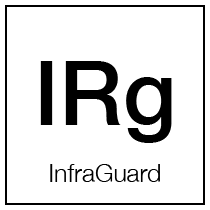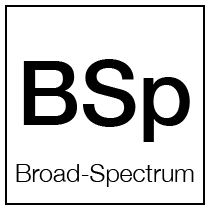
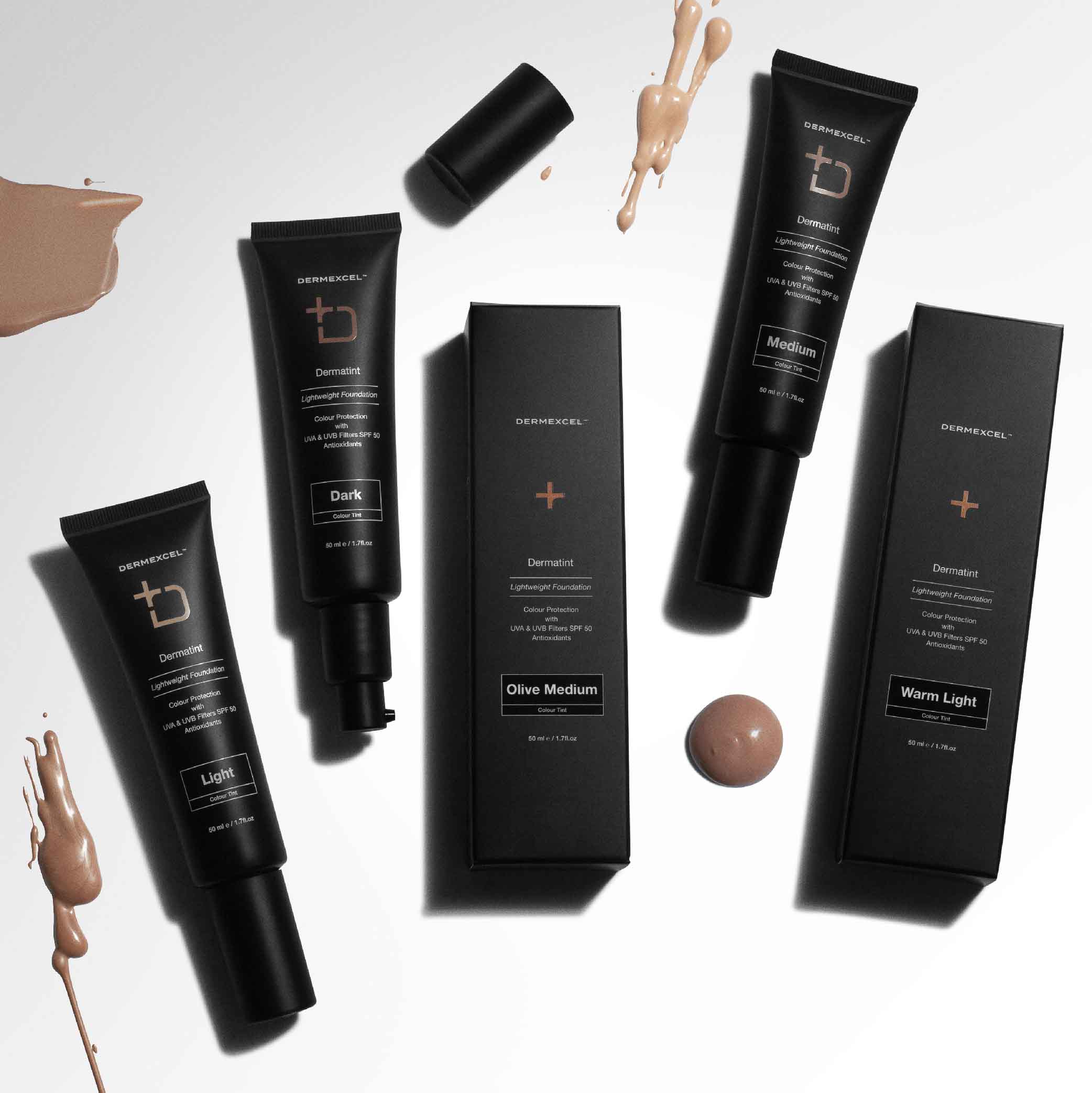





For the woman who’s just getting started—but already knows where she’s going

DNA Protection

anti-aging

hydrated skin

smooth skin

Antioxidant




SHIPPING
- Shipping Guarantee: Guiding you to healthy skin isn’t only about our products; it's also about getting them to you as swiftly as the science behind them. That's why Dermal Health offers a shipping guarantee you can rely on.
- Where We Ship From: Orders are dispatched from our facilities in Pretoria.
- Who We Ship With: We trust only well-known, popular, and dependable courier services with your packages.
- When You'll Get It: Expect confident skin soon! Shipping addresses in Pretoria and Johannesburg will enjoy delivery from same-day to 2 business days. Shipping addresses further from Pretoria may expect delivery within 1-4 business days, depending on the service you select during checkout. Your estimated delivery date will reflect during checkout so that you can mark your calendar.
- Tracking Your Order: Eager to start your DermExcel journey? We don't blame you! You'll receive a tracking number after you place your order so that you can follow your package.
For any shipping inquiries, our customer service team is ready to assist.
SECURE PAYMENT
Dermal Health Science 30-Day Confidence Guarantee: We are passionate about guiding you to healthy skin through medical science. We believe in the quality and effectiveness of our products so much that we offer a 30-Day Confidence Guarantee.
If you're unsatisfied with your purchase, simply return it within 30 days for a full refund.
Healthy Skin Is Not Complicated and neither is our return policy. Please visit our detailed return policy or contact our friendly customer service team for more information.
Feel as confident in us as we want you to feel in your skin.

Choose options



For the woman who’s just getting started—but already knows where she’s going
The Twenty-Something Gift Set is a refined edit of purposeful skincare and everyday luxury. Designed for those stepping into independence and building confidence through simplicity and consistency, this collection is both practical and elevated.
Whether you’re gifting a milestone or investing in yourself, it’s a set that supports clarity, confidence, and timeless style—without the fuss.
What’s Inside
Retinol Serum
A high-performance formula powered by Hydroxypinacolone Retinoate—a gentle yet effective retinoid that promotes clear skin, smooth texture, and refined pores. Targets breakouts, uneven tone, and early signs of aging for a healthier, more even complexion.
Dermatint Lightweight Foundation SPF 50 – Shade of Your Choice
This lightweight tinted treatment offers breathable coverage while calming the skin, refining tone, and protecting against UV damage. With antioxidant support and broad-spectrum SPF, it's ideal for everyday wear. Choose the perfect shade to match your natural tone.
Genuine Leather Sling Clutch Bag - Butterscotch
Crafted from 100% genuine leather, this sling clutch features a clean, minimalist silhouette in a warm butterscotch hue. With a spacious unlined interior, secure zip closure, and removable wrist strap, it’s built for everything from errands to evenings out.
Rose Gold Lip Butter Ball
A nourishing lip balm made with hydrating natural oils and antioxidant-rich vitamin E. It helps soften, protect, and condition dry lips with a lightweight, non-greasy finish and a subtle scent—perfect for daily care.
Dermatint - Light / Warm-Light / Medium / Olive-Medium / Dark / Warm-Dark
(Depending on the color you selected)
active ingredients in this gift pack
Retinoic acid analogue
Retinoic acid, often referred to as tretinoin in its pharmaceutical form, is the active form of Vitamin A. It is widely recognized for its powerful effects in dermatology and skin care, particularly in treating acne and signs of skin aging.
Retinoic acid works at the cellular level to modify gene expression and affect cell growth. In treating acne, it promotes the turnover of skin cells, reducing the likelihood of pore-clogging and helping to clear existing breakouts. Additionally, it decreases the cohesiveness of follicular epithelial cells, further preventing the formation of comedones.
Retinoic acid's ability to stimulate collagen production is a key benefit in anti-aging skincare. This leads to a reduction in fine lines and wrinkles and an improvement in overall skin texture and tone. It also aids skin discoloration and hyperpigmentation by accelerating cell turnover, bringing new skin cells to the surface faster, and shedding pigmented and damaged cells.
Despite its benefits, retinoic acid can irritate the skin, causing side effects like redness, dryness, and peeling, especially during the initial period of use. Its potency means it is generally available by prescription and requires careful monitoring by a healthcare professional.
Hydroxypinacolone Retinoate (HPR) is a newer, esterified form of retinoic acid. Unlike cosmetic retinol, HPR binds directly to the retinoid receptors of the skin cells without needing conversion. This direct binding allows it to deliver similar benefits to retinoic acid, such as stimulating collagen production, improving skin elasticity, and reducing signs of aging, but with a lower risk of irritation.
HPR is considered more gentle and less irritating than traditional retinoic acid while offering comparable benefits. With HPR, everyone has access to the benefits of prescription retinoids without the risk of side effects.
Physiological Effects
- Cell Turnover and Renewal: HPR promotes rapid cell turnover, aiding in the exfoliation of dead skin cells and generating new cells.
- Skin Texture: Promoting cell renewal improves skin texture and addresses issues like roughness and dullness.
- Collagen Production: It stimulates collagen production, which is essential for reducing the appearance of fine lines and wrinkles and improving skin elasticity.
- Acne Treatment: Effective in treating acne by unclogging pores and reducing the size of sebaceous glands, it diminishes both inflammatory and non-inflammatory acne lesions.
- Pigmentation: It can reduce hyperpigmentation by accelerating the turnover of hyperpigmented skin cells and inhibiting melanin production.
- Photoaging: Effective in treating signs of photoaging, reversing some of the damage caused by UV radiation.
Special Benefits
- Retinoid Receptor Activity: HPR, an ester of retinoic acid, binds directly to retinoid receptors in the skin, enabling it to work without needing to be converted into retinoic acid.
- Lower Irritation: Typically, it causes less irritation than retinoic acid, making it more suitable for sensitive skin types.
- Collagen Stimulation and Anti-Aging: Like retinoic acid, HPR helps in stimulating collagen production and has anti-aging properties.
- Acne and Hyperpigmentation: It effectively treats acne and reduces hyperpigmentation, often with fewer side effects than retinoic acid.
- Stability and Penetration: HPR is more stable and lipid-soluble, so it penetrates the skin more effectively and is less prone to degradation.
References
- Zaenglein, A. L., Pathy, A. L., Schlosser, B. J., Alikhan, A., Baldwin, H. E., Berson, D. S., ... & Thiboutot, D. M. (2016). Guidelines of care for the management of acne vulgaris. Journal of the American Academy of Dermatology, 74(5), 945-973.e33.
- Fisher, G. J., Wang, Z. Q., Datta, S. C., Varani, J., Kang, S., & Voorhees, J. J. (1996). Pathophysiology of premature skin aging induced by ultraviolet light. New England Journal of Medicine, 337(20), 1419-1428.
- Truchuelo, M. T., Jiménez, N., Jaén, P. (2018). Assessment of the efficacy of a new complex-based retinoic acid and retinol in a 3-month study using objective methods and skin biomarker analysis. Journal of Cosmetic Dermatology, 17(3), 347-354.
- Mukherjee, S., et al. (2006). Retinoids in the treatment of skin aging: an overview of clinical efficacy and safety. Clinical Interventions in Aging.
- Randhawa, M., et al. (2015). Hydroxypinacolone retinoate: a new retinoid and its use in dermatology. Skin Therapy Letter.
Peptides
Peptides are short chains of amino acids with a wide range of biological functions and skin benefits. They are essentially small fragments of proteins, which are fundamental components of all living cells, including collagen and elastin in the skin.
In skincare, peptides are known for enhancing skin repair and rejuvenation. They function as signaling molecules, instructing cells to perform specific tasks such as producing collagen and elastin, vital for maintaining the skin's firmness and elasticity. This makes peptides especially beneficial in anti-aging products, as they can help reduce the appearance of fine lines and wrinkles.
Research has shown that certain peptides can improve skin barrier function, increase hydration, and soothe skin inflammation. This makes them suitable for products targeting dry, sensitive, or inflamed skin.
Peptides, with their diverse functions in promoting collagen production, strengthening the skin barrier, wound healing, and anti-inflammatory actions, are pivotal in managing various dermatological conditions, particularly in anti-aging, sensitive skin care, and wound healing applications.
Physiological Effects
- Collagen Production: Certain peptides, known as signal peptides, stimulate collagen production in the skin, enhancing skin firmness and reducing the appearance of fine lines and wrinkles.
- Skin Barrier Strengthening: Peptides can strengthen the skin barrier, improve hydration, and protect against environmental damage.
- Wound Healing: Some peptides play a role in the skin's natural healing process, aiding tissue repair and regeneration.
- Anti-Inflammatory Effects: Certain peptides have anti-inflammatory properties, helping to soothe and calm irritated skin.
- Antimicrobial Action: Some peptides possess antimicrobial properties, potentially helping to manage acne and other skin infections.
Managing Dermatological Conditions
- Aging Skin: Peptides can stimulate collagen production and improve skin elasticity.
- Sensitive Skin Conditions: Peptides are beneficial for sensitive or inflamed skin due to their soothing properties.
- Acne-Prone Skin: Antimicrobial peptides can be effective in acne treatment formulations.
- Wound Care and Repair: Peptides improve wound healing and reduce scarring.
References
- Gorouhi, F., & Maibach, H. I. (2009). Role of topical peptides in preventing or treating aged skin. International Journal of Cosmetic Science.
- Schagen, S. K. (2012). Topical peptide treatments with effective anti-aging results. Cosmetics.
- Varani, J., et al. (2001). Vitamin A antagonizes decreased cell growth and elevated collagen-degrading matrix metalloproteinases and stimulates collagen accumulation in naturally aged human skin. Journal of Investigative Dermatology.
Matrixyl 3000
Matrixyl 3000: The Powerhouse of Anti-Aging Peptides
Matrixyl 3000, a trademarked peptide composition, has revolutionized the approach towards anti-aging in dermatological products. This innovative ingredient combines two peptides, Palmitoyl Tripeptide-1 and Palmitoyl Tetrapeptide-7. The synergy of these peptides enhances skin repair and reduces the appearance of aging.
Physiological Effects
- Collagen and Elastin Stimulation: Matrixyl 3000 promotes the production of collagen and elastin, key proteins that provide skin structure and elasticity. This helps reduce the appearance of fine lines and wrinkles.
- Skin Repair and Regeneration: It aids in the skin's repair process, enhancing the overall texture and tone, and may help reverse the signs of aging.
- Anti-inflammatory Properties: Matrixyl 3000 can have anti-inflammatory effects, reducing inflammation and potentially aiding in skin repair.
- Hydration Enhancement: Improving the underlying skin structure can enhance hydration, leading to a plumper, more youthful appearance.
Managing Dermatological Conditions
- Aging Skin: Its primary use is in anti-aging skincare products to combat wrinkles, fine lines, and other signs of aging.
- Improving Skin Texture and Tone: Matrixyl 3000 can improve overall skin texture, which is beneficial for skin that has lost smoothness or become rough due to aging.
- Skin Elasticity: It can help improve skin elasticity, making it appear firmer and more toned.
Biochemical Mechanism and Clinical Efficacy
Matrixyl 3000 mimics the appearance of broken-down collagen, causing the skin to react by producing more collagen and elastin. Palmitoyl Tripeptide-1 is known for stimulating collagen synthesis and firming the skin, while Palmitoyl Tetrapeptide-7 reduces inflammation, a key contributor to aging.
Studies have shown that Matrixyl 3000 significantly improves skin elasticity and reduces wrinkle depth. A notable study published in the "International Journal of Cosmetic Science" demonstrated that Matrixyl 3000 reduced wrinkle volume and depth by up to 45% after 2 months of use (Smith, 2005).
Matrixyl 3000 stands out as a non-irritating, highly effective ingredient. Its role in stimulating collagen and elastin production and reducing inflammation is a cornerstone in anti-aging skincare regimens.
References
- Smith, J. (2005). "Effects of Matrixyl 3000 on Skin Aging." International Journal of Cosmetic Science.
- Sederma Inc., "Matrixyl 3000 Technical Overview."
- Blackburn, R. S., et al. (2005). Matrixyl 3000 restores skin's metabolic balance. Journal of Cosmetic Science.
- Lintner, K., et al. (2007). Matrixyl 3000: A new approach to anti-aging. Personal Care Magazine.
- Gorouhi, F., & Maibach, H. I. (2009). Role of topical peptides in preventing or treating aged skin. International Journal of Cosmetic Science.
Acetyl Hexapeptide-8
Acetyl Hexapeptide-8: The Innovative Peptide in Anti-Aging Dermatology
Acetyl Hexapeptide-8 is a testament to the advancements in peptide technology in dermatology. Its ability to reduce facial muscle contractions non-invasively positions it as an essential ingredient in anti-aging skincare.
Biochemical Mechanism
Acetyl Hexapeptide-8 functions by inhibiting the neurotransmitters that trigger muscle contractions. This action reduces the intensity of wrinkle-causing facial expressions, leading to a visible decrease in fine lines and wrinkles. It mimics the N-terminal end of SNAP-25, competing with this natural protein for a position in the SNARE complex, thereby destabilizing it. As a result, neurotransmitter release is diminished, and facial muscle contractions are softened.
Physiological Effects
- Neurotransmitter Inhibition: Acetyl Hexapeptide-8 works by inhibiting neurotransmitter release. This leads to reduced facial muscle contraction, a mechanism similar to Botox but less invasive.
- Reduction of Expression Lines: Helps to reduce the appearance of expression lines, particularly around the forehead and eyes, by limiting muscle contraction.
- Improvement in Skin Texture: Regular use can lead to smoother skin texture and a reduction in the depth and severity of wrinkles.
Special Benefits
Clinical Efficacy - Clinical studies have demonstrated the effectiveness of Acetyl Hexapeptide-8 in reducing wrinkle depth. A study published in the "International Journal of Cosmetic Science" reported that a cream containing 10% Acetyl Hexapeptide-8 reduced wrinkles by 30% over 30 days (Blanes-Mira et al., 2002).
References
- Blanes-Mira, C., et al. (2002). A synthetic hexapeptide (Argireline) with antiwrinkle activity. International Journal of Cosmetic Science.
- Wang, Y., et al. (2013). The anti-wrinkle efficacy of Argireline. Journal of Cosmetic and Laser Therapy.
- Ruiz, M. A., et al. (2007). New cosmetic formulations containing Argireline. Journal of Cosmetic Science.
Niacinamide
Niacinamide offers several benefits for the skin, primarily due to its anti-inflammatory and antioxidant properties. It reduces the redness and inflammation associated with acne, rosacea, and other inflammatory skin conditions. Additionally, niacinamide's ability to improve the skin's barrier function benefits all skin types, particularly those with eczema or mature skin.
Another significant benefit of niacinamide is its role in reducing hyperpigmentation. Studies have shown that it can decrease the transfer of melanin to the epidermis, helping to fade dark spots and even out skin tone.
Niacinamide also plays a role in reducing the visible signs of aging. It has been found to stimulate collagen production and improve skin elasticity, reducing fine lines and wrinkles. Its antioxidant properties further protect the skin from environmental damage, such as pollution and UV radiation, which contribute to premature aging.
The efficacy of niacinamide and its ability to address multiple skin concerns simultaneously has led to its growing popularity in both over-the-counter and prescription skincare formulations.
Physiological Effects
- Barrier Function Enhancement: Niacinamide helps strengthen the skin’s barrier function by increasing the production of ceramides, lipids that keep the skin hydrated and protect against environmental damage.
- Anti-inflammatory Properties: It has notable anti-inflammatory effects, which are beneficial in reducing redness and inflammation associated with acne, eczema, and other inflammatory skin conditions.
- Sebum Regulation: Niacinamide helps regulate sebum production, which controls excess oiliness and can benefit acne-prone skin.
- Hyperpigmentation Reduction: It reduces hyperpigmentation by inhibiting melanosome transfer from melanocytes to keratinocytes, leading to an even skin tone.
- Anti-aging Effects: Niacinamide helps reduce the appearance of fine lines and wrinkles by boosting collagen production and improving skin elasticity.
- Antioxidant Activity: It has antioxidant properties, protecting the skin from oxidative stress and environmental aggressors like UV radiation and pollution.
Managing Dermatological Conditions
- Acne and Oily Skin: Niacinamide effectively manages acne and oily skin by regulating sebum and reducing inflammation.
- Hyperpigmentation and Melasma: Its ability to reduce melanin transfer benefits it in treating hyperpigmentation and melasma.
- Aging Skin: Niacinamide targets wrinkles and loss of firmness.
- Skin Barrier Disorders: Niacinamide is beneficial in treating skin barrier disorders like atopic dermatitis and eczema by enhancing barrier function and hydration.
- Photodamage and Skin Protection: It helps mitigate the effects of photodamage and provides some degree of protection against environmental damage.
References
- Gehring, W. (2004). Nicotinic acid/niacinamide and the skin. Journal of Cosmetic Dermatology.
- Bissett, D. L., Oblong, J. E., & Berge, C. A. (2005). Niacinamide: A B vitamin that improves aging facial skin appearance. Dermatologic Surgery.
- Snaidr, V. A., Damian, D. L., & Halliday, G. M. (2019). Nicotinamide for photoprotection and skin cancer chemoprevention: A review of efficacy and safety. Experimental Dermatology.
- Navarrete-Solís, J. et al. (2011). A Double-Blind, Randomized Clinical Trial of Niacinamide 4% versus Hydroquinone 4% in the Treatment of Melasma. Dermatology Research and Practice, 2011.
UVA Filters
Neo Heliopan® 357, commonly known as Avobenzone offers significant benefits from biochemical, pharmacological, and physiological perspectives:
Biochemical Benefits
- UVA Absorption: It functions by absorbing UVA radiation, particularly in the 320-400 nm range, which includes both UVA1 and UVA2 rays. Biochemically, it absorbs high-energy UVA photons and releases the energy as lower-energy photons, thereby preventing the UV radiation from penetrating deeper into the skin and causing cellular damage.
- Prevention of Photoaging: By absorbing UVA rays, it helps prevent the biochemical processes that lead to photoaging, such as degradation of collagen and elastin, which are vital for maintaining skin structure and elasticity.
Pharmacological Advantages
- Protection Against Long-Term Skin Damage: Help to protect the skin from long-term damage such as photoaging, hyperpigmentation, and the development of certain types of skin cancer associated with UVA exposure.
- Synergistic Effect: Often used in combination with other UVB and UVA filters, it contributes to a broad-spectrum protection profile, enhancing the overall efficacy of sunscreen.
Physiological Impact
- Skin Aging Prevention: Protects the skin from UVA radiation and minimizing the signs of aging caused by UVA-induced damage.
- Enhanced Skin Health: By filtering out harmful UVA rays, it aids in maintaining overall skin health, preventing the breakdown of DNA in skin cells, and reducing oxidative stress.
UVB Filters
Uvinul® T 150 and Uvinul® MC 80 offer superior UVB protection, high photostability and very good skin compatibility.
Uvinul® T 150
- High UVB Absorption: Uvinul® T 150 is known for its exceptionally high UVB absorption. It is one of the most efficient UVB filters on a per weight basis, meaning less of it is required to achieve the same level of protection as other filters.
- Photostability: This compound is highly photostable, meaning it doesn't degrade easily when exposed to sunlight. This property is crucial for maintaining consistent UV protection over time.
- Water Resistance: Uvinul® T 150 improve the water resistance of our sunscreen, beneficial for when you have swimming or outdoor activities.
- Low Irritation Potential: It is generally well-tolerated by the skin, with a lower risk of irritation or sensitization compared to other UVB filters.
Uvinul® MC 80
- Efficacy: With an extensive and impressive safety and efficacy history, Uvinul® MC 80 is highly effective in protecting the skin from UVB rays, which are primarily responsible for sunburn and can contribute to skin cancer.
- Elegance: Uvinul® MC 80 have a fantastic texture, leaving no white cast.
Sunscreen
Using sunscreen is a fundamental aspect of skin care and preventive dermatology. It's essential for reducing the risk of skin cancers and photoaging and maintaining overall skin health in the face of constant exposure to UV radiation.
Sunscreen is a vital skincare product designed to protect the skin from the harmful effects of ultraviolet (UV) radiation from the sun. Two primary types of UV radiation affect the skin: UVA and UVB. UVA rays penetrate deep into the skin and are primarily responsible for aging and long-term skin damage, whereas UVB rays cause sunburn and play a key role in developing skin cancer.
Sunscreen products work by either absorbing, reflecting, or scattering sunlight. They contain chemical compounds that absorb UV radiation and convert it into a small amount of heat or physical compounds (like zinc oxide or titanium dioxide) that act as a physical barrier, reflecting UV light away from the skin.
The effectiveness of sunscreen is measured by its Sun Protection Factor (SPF). SPF indicates how well the sunscreen protects against UVB rays. For example, an SPF of 30 means it would take 30 times longer for your skin to burn than without sunscreen. However, it's important to note that no sunscreen can block 100% UV rays.
Regular use of sunscreen with an SPF of at least 30 can reduce the risk of skin cancer, prevent sunburn, and slow down the skin's aging process.
Managing Dermatological Conditions
- Prevention of Sunburn: Sunscreen protects the skin from UVB rays, which cause sunburn. This reduces the immediate risk of skin damage and discomfort.
- Skin Cancer Prevention: Regular use of sunscreen significantly lowers the risk of developing various types of skin cancer, especially melanoma, squamous cell carcinoma, and basal cell carcinoma.
- Prevention of Photoaging: Sunscreen also shields the skin from UVA rays, which penetrate deeper into the skin and are primarily responsible for photoaging, including wrinkles, leathery skin, and sunspots.
- Protection Against Photosensitivity: Sunscreen helps prevent flare-ups triggered by sun exposure for individuals with photosensitive skin conditions like lupus or rosacea.
- Hyperpigmentation and Melasma: It aids in preventing and managing hyperpigmentation and melasma, conditions exacerbated by sun exposure.
- General Skin Health: Sunscreen helps maintain overall skin health and integrity by protecting the skin from UV damage.
References
- Burnett, M. E., & Wang, S. Q. (2011). Current sunscreen controversies: a critical review. Photodermatology, Photoimmunology & Photomedicine.
- Green, A. C., et al. (2011). Reduced melanoma after regular sunscreen use: randomized trial follow-up. Journal of Clinical Oncology.
- Hughes, M. C. B., et al. (2013). Sunscreen and Prevention of Skin Aging: A Randomized Trial. Annals of Internal Medicine.
Infraguard™ is a novel and powerful antioxidant powerhouse, designed to protect the skin from the potentially harmful effects of electromagnetic radiation, specifically from 5G networks, blue light, and other environmental stressors. It functions by shielding the skin against oxidative stress and inflammation, contributing to the prevention of premature aging and maintaining overall skin health.
Physiological Effects of Infraguard
- Protection Against Blue Light and Infrared (IR) Radiation: Infraguard is formulated to shield the skin from the harmful effects of blue light and IR radiation, which can lead to premature skin aging and damage.
- Antioxidant Properties: It has strong antioxidant capabilities, helping to neutralize free radicals induced by environmental stressors such as pollution, IR, and blue light.
- Anti-Aging Benefits: By protecting against IR radiation and mitigating oxidative stress, Infraguard helps to prevent signs of aging like wrinkles and loss of skin elasticity.
- Skin Barrier Protection: Infraguard aids in reinforcing the skin's natural barrier, enhancing its resilience against environmental factors.
- DNA Protection: Infraguard™ aids in shielding the DNA in skin cells from damage caused by environmental aggressors. This is crucial in maintaining the integrity of skin cells and preventing mutations that can lead to skin aging and other skin-related issues.
Role and Benefits in Dermatology
- Preventing Photoaging: Infraguard's ability to protect against IR and blue light makes it beneficial in preventing photoaging, a key concern in modern dermatology. Infrared light can penetrate deeper into the skin compared to UV rays, potentially leading to increased collagen degradation and skin laxity. Infraguard® helps in mitigating these effects.
- Combatting Environmental Stressors: Its antioxidant properties make it effective in protecting the skin from various environmental pollutants and stressors.
- Supporting Skin Health: By improving the skin's barrier function and providing antioxidant support, Infraguard contributes to overall skin health.
- Suitability for Diverse Skin Conditions: Given its protective and anti-aging properties, Infraguard is suitable for use in a wide range of dermatological conditions, especially those related to environmental damage and aging.
References
- Kappler, Katharina et al. "Development of an in Vitro Assay to Evaluate the Biological Impact of 5G Technology on Human Skin. Journal of Cosmetics, Dermatological Sciences and Applications, 2022, vol. 12, pp. 100-108. DOI: 10.4236/jcdsa.2022.122009.
- Extensive references cited within the research article including studies on 5G technology, health effects, and skin biology.
Infraguard® is a multifunctional ingredient that extends beyond traditional sun protection. It addresses the broader spectrum of light-induced skin damage and oxidative stress, provides DNA protection, and offers anti-aging benefits. Its inclusion in the DermExcel sunscreens represents an advanced step in comprehensive skin care, targeting not just UV rays but also the often-overlooked infrared and blue light, thereby ensuring a more holistic approach to maintaining skin health and appearance.
CoQ10 is a potent ingredient that offers comprehensive benefits for skin health and appearance. Its role in energy production, combined with its antioxidant and anti-aging properties, makes it an invaluable for photoprotection, anti-aging, and overall skin vitality. Its incorporation into DermExcel sunscreen represents a holistic approach to skin health, addressing both protective and restorative needs.
Biochemical Benefits
- Cellular Energy Production: CoQ10 plays a crucial role in the mitochondrial electron transport chain, which is essential for the production of ATP, the primary energy currency of the cell. This function is vital for maintaining the health and vitality of skin cells.
- Antioxidant Properties: It acts as a lipophilic antioxidant, neutralizing free radicals and preventing oxidative damage to cell membranes, proteins, and DNA. This is particularly important in the skin, which is frequently exposed to oxidative stress from environmental factors like UV radiation.
Pharmacological Advantages
- Anti-Aging Effects: CoQ10's antioxidant properties contribute to its anti-aging effects. By reducing oxidative stress, it helps to minimize the visible signs of aging, such as wrinkles and fine lines.
- Photoprotection: It enhances the skin's defense against photoaging caused by exposure to UV rays. CoQ10 helps to mitigate the degradation of collagen and elastin, proteins essential for maintaining skin elasticity and firmness.
Physiological Impact
- Skin Barrier Enhancement: CoQ10 contributes to the strength and health of the skin barrier, improving its ability to retain moisture and protect against external irritants and pollutants.
- Skin Repair and Regeneration: It supports the skin's natural ability to repair itself and regenerate, maintaining a healthy, youthful appearance. This is particularly beneficial in mature skin, where natural levels of CoQ10 may be depleted.
products in your gift pack
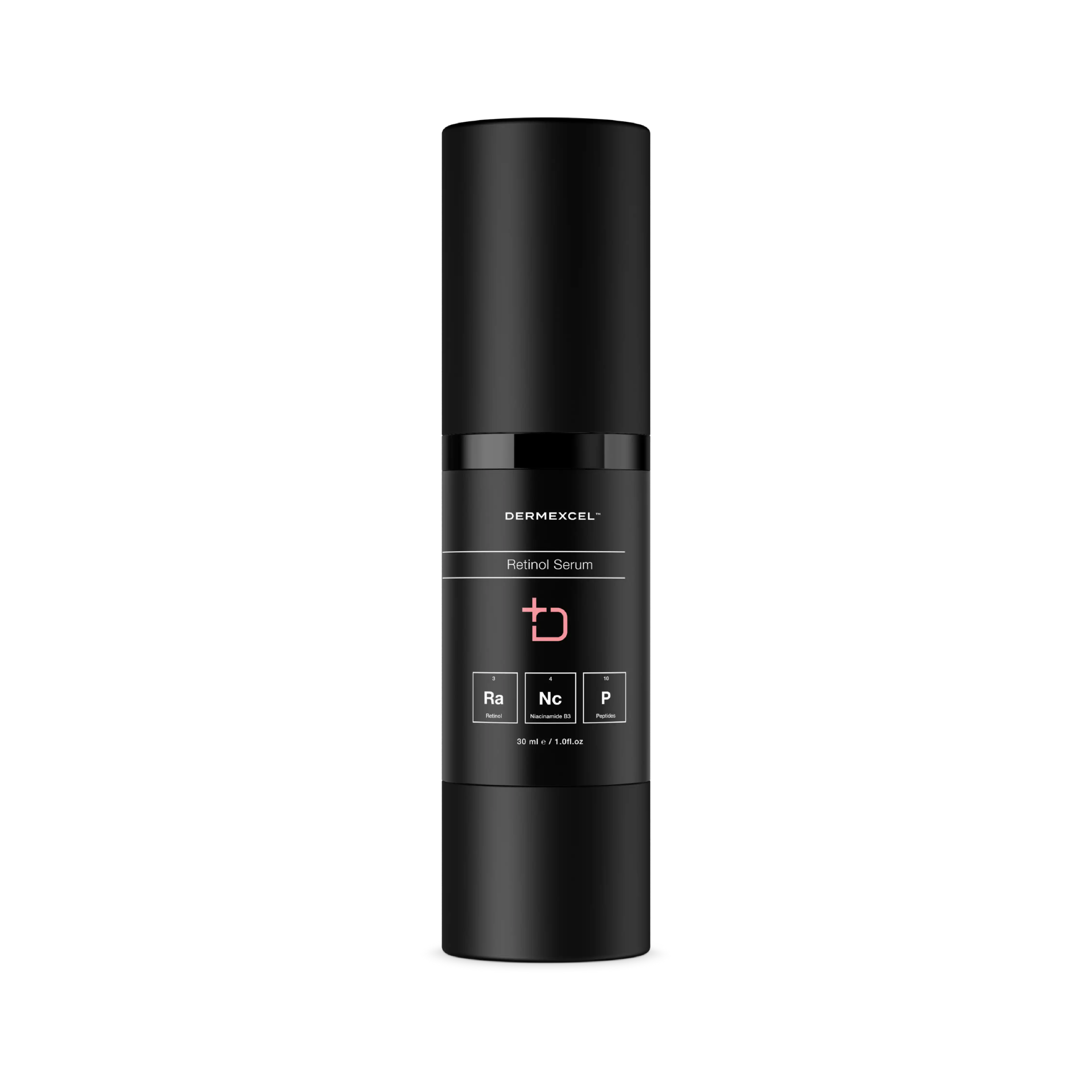
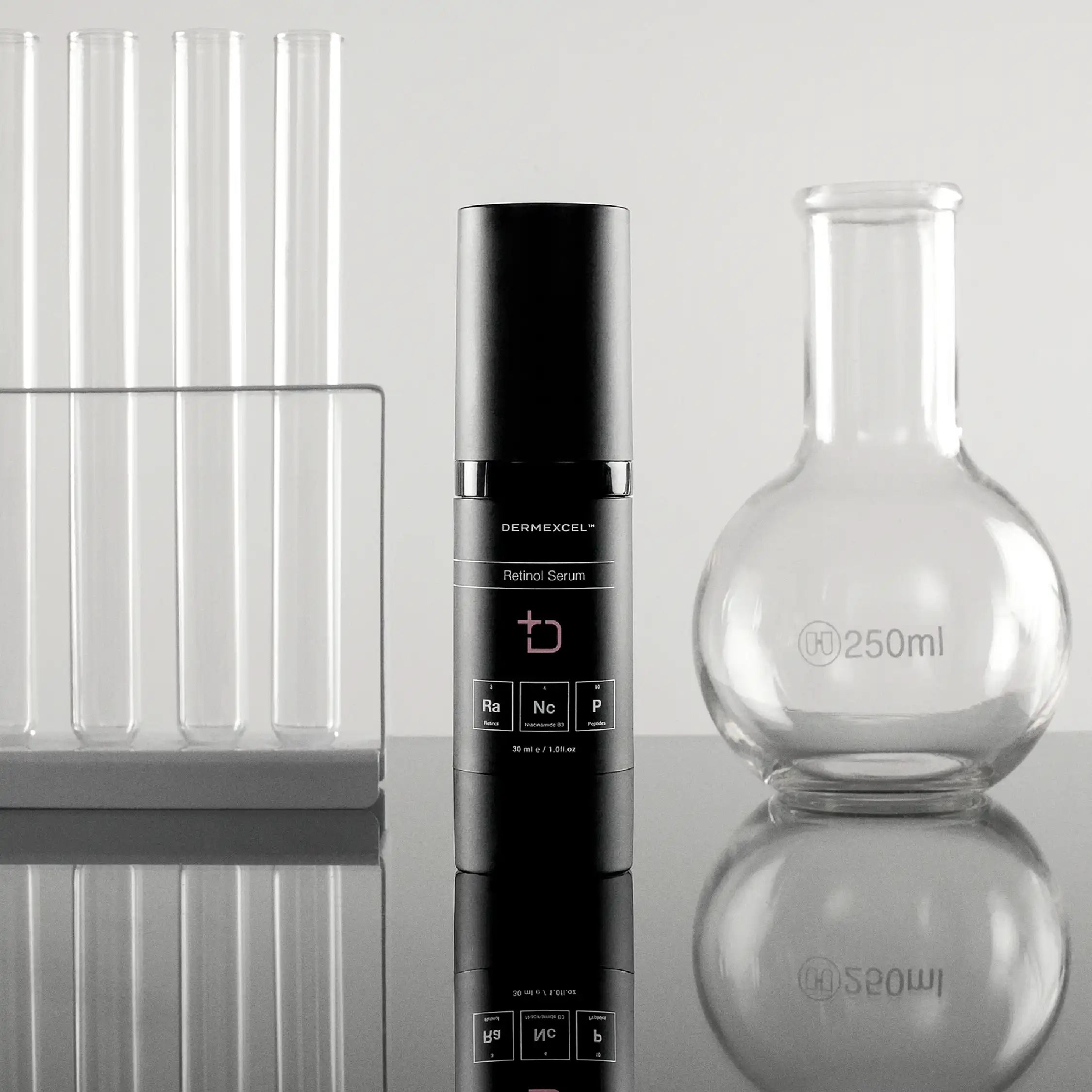




SIZE: 30 mL

Unclog Pores

Minimize Pores

Smooth Skin

anti-aging

DNA repair
An advanced skincare formula that leverages the potency of active ingredients like Hydroxypinacolone Retinoate, Niacinamide, and Acetyl Hexapeptide-8.
Hydroxypinacolone Retinoate, a form of retinoid, works at the cellular level to stimulate epidermal growth, counteracting both intrinsic and extrinsic signs of aging. It aids in reducing hyperpigmentation and evening skin tone while promoting the development of collagen and elastin, proteins that are vital for maintaining skin's elasticity and structure.
Another key ingredient, Niacinamide, is instrumental in supporting cell health in the skin. It helps build and protect skin cells from environmental stresses like sunlight, pollution, and toxins while also significantly supporting acne treatment.
Acetyl Hexapeptide-8, a synthetic peptide, adds to the formula's efficacy by slowing down muscle movement in the face, thus decreasing the appearance of wrinkles and expression lines. It enhances collagen production, which firms the skin and increases its elasticity. Additionally, it provides hydration, keeping the skin well-moisturized.
DermExcel Retinol Serum stimulates collagen production, reduces inflammation, inhibits pigmentation, and accelerates cell turnover, all contributing to a healthier and more youthful complexion. It also aids in reducing sebum production and unclogging pores, making it a potent tool in the battle against acne.
Retinoic acid analogue
Retinoic acid, often referred to as tretinoin in its pharmaceutical form, is the active form of Vitamin A. It is widely recognized for its powerful effects in dermatology and skin care, particularly in treating acne and signs of skin aging.
Retinoic acid works at the cellular level to modify gene expression and affect cell growth. In treating acne, it promotes the turnover of skin cells, reducing the likelihood of pore-clogging and helping to clear existing breakouts. Additionally, it decreases the cohesiveness of follicular epithelial cells, further preventing the formation of comedones.
Retinoic acid's ability to stimulate collagen production is a key benefit in anti-aging skincare. This leads to a reduction in fine lines and wrinkles and an improvement in overall skin texture and tone. It also aids skin discoloration and hyperpigmentation by accelerating cell turnover, bringing new skin cells to the surface faster, and shedding pigmented and damaged cells.
Despite its benefits, retinoic acid can irritate the skin, causing side effects like redness, dryness, and peeling, especially during the initial period of use. Its potency means it is generally available by prescription and requires careful monitoring by a healthcare professional.
Hydroxypinacolone Retinoate (HPR) is a newer, esterified form of retinoic acid. Unlike cosmetic retinol, HPR binds directly to the retinoid receptors of the skin cells without needing conversion. This direct binding allows it to deliver similar benefits to retinoic acid, such as stimulating collagen production, improving skin elasticity, and reducing signs of aging, but with a lower risk of irritation.
HPR is considered more gentle and less irritating than traditional retinoic acid while offering comparable benefits. With HPR, everyone has access to the benefits of prescription retinoids without the risk of side effects.
Physiological Effects
- Cell Turnover and Renewal: HPR promotes rapid cell turnover, aiding in the exfoliation of dead skin cells and generating new cells.
- Skin Texture: Promoting cell renewal improves skin texture and addresses issues like roughness and dullness.
- Collagen Production: It stimulates collagen production, which is essential for reducing the appearance of fine lines and wrinkles and improving skin elasticity.
- Acne Treatment: Effective in treating acne by unclogging pores and reducing the size of sebaceous glands, it diminishes both inflammatory and non-inflammatory acne lesions.
- Pigmentation: It can reduce hyperpigmentation by accelerating the turnover of hyperpigmented skin cells and inhibiting melanin production.
- Photoaging: Effective in treating signs of photoaging, reversing some of the damage caused by UV radiation.
Special Benefits
- Retinoid Receptor Activity: HPR, an ester of retinoic acid, binds directly to retinoid receptors in the skin, enabling it to work without needing to be converted into retinoic acid.
- Lower Irritation: Typically, it causes less irritation than retinoic acid, making it more suitable for sensitive skin types.
- Collagen Stimulation and Anti-Aging: Like retinoic acid, HPR helps in stimulating collagen production and has anti-aging properties.
- Acne and Hyperpigmentation: It effectively treats acne and reduces hyperpigmentation, often with fewer side effects than retinoic acid.
- Stability and Penetration: HPR is more stable and lipid-soluble, so it penetrates the skin more effectively and is less prone to degradation.
References
- Zaenglein, A. L., Pathy, A. L., Schlosser, B. J., Alikhan, A., Baldwin, H. E., Berson, D. S., ... & Thiboutot, D. M. (2016). Guidelines of care for the management of acne vulgaris. Journal of the American Academy of Dermatology, 74(5), 945-973.e33.
- Fisher, G. J., Wang, Z. Q., Datta, S. C., Varani, J., Kang, S., & Voorhees, J. J. (1996). Pathophysiology of premature skin aging induced by ultraviolet light. New England Journal of Medicine, 337(20), 1419-1428.
- Truchuelo, M. T., Jiménez, N., Jaén, P. (2018). Assessment of the efficacy of a new complex-based retinoic acid and retinol in a 3-month study using objective methods and skin biomarker analysis. Journal of Cosmetic Dermatology, 17(3), 347-354.
- Mukherjee, S., et al. (2006). Retinoids in the treatment of skin aging: an overview of clinical efficacy and safety. Clinical Interventions in Aging.
- Randhawa, M., et al. (2015). Hydroxypinacolone retinoate: a new retinoid and its use in dermatology. Skin Therapy Letter.
Niacinamide
Niacinamide offers several benefits for the skin, primarily due to its anti-inflammatory and antioxidant properties. It reduces the redness and inflammation associated with acne, rosacea, and other inflammatory skin conditions. Additionally, niacinamide's ability to improve the skin's barrier function benefits all skin types, particularly those with eczema or mature skin.
Another significant benefit of niacinamide is its role in reducing hyperpigmentation. Studies have shown that it can decrease the transfer of melanin to the epidermis, helping to fade dark spots and even out skin tone.
Niacinamide also plays a role in reducing the visible signs of aging. It has been found to stimulate collagen production and improve skin elasticity, reducing fine lines and wrinkles. Its antioxidant properties further protect the skin from environmental damage, such as pollution and UV radiation, which contribute to premature aging.
The efficacy of niacinamide and its ability to address multiple skin concerns simultaneously has led to its growing popularity in both over-the-counter and prescription skincare formulations.
Physiological Effects
- Barrier Function Enhancement: Niacinamide helps strengthen the skin’s barrier function by increasing the production of ceramides, lipids that keep the skin hydrated and protect against environmental damage.
- Anti-inflammatory Properties: It has notable anti-inflammatory effects, which are beneficial in reducing redness and inflammation associated with acne, eczema, and other inflammatory skin conditions.
- Sebum Regulation: Niacinamide helps regulate sebum production, which controls excess oiliness and can benefit acne-prone skin.
- Hyperpigmentation Reduction: It reduces hyperpigmentation by inhibiting melanosome transfer from melanocytes to keratinocytes, leading to an even skin tone.
- Anti-aging Effects: Niacinamide helps reduce the appearance of fine lines and wrinkles by boosting collagen production and improving skin elasticity.
- Antioxidant Activity: It has antioxidant properties, protecting the skin from oxidative stress and environmental aggressors like UV radiation and pollution.
Managing Dermatological Conditions
- Acne and Oily Skin: Niacinamide effectively manages acne and oily skin by regulating sebum and reducing inflammation.
- Hyperpigmentation and Melasma: Its ability to reduce melanin transfer benefits it in treating hyperpigmentation and melasma.
- Aging Skin: Niacinamide targets wrinkles and loss of firmness.
- Skin Barrier Disorders: Niacinamide is beneficial in treating skin barrier disorders like atopic dermatitis and eczema by enhancing barrier function and hydration.
- Photodamage and Skin Protection: It helps mitigate the effects of photodamage and provides some degree of protection against environmental damage.
References
- Gehring, W. (2004). Nicotinic acid/niacinamide and the skin. Journal of Cosmetic Dermatology.
- Bissett, D. L., Oblong, J. E., & Berge, C. A. (2005). Niacinamide: A B vitamin that improves aging facial skin appearance. Dermatologic Surgery.
- Snaidr, V. A., Damian, D. L., & Halliday, G. M. (2019). Nicotinamide for photoprotection and skin cancer chemoprevention: A review of efficacy and safety. Experimental Dermatology.
- Navarrete-Solís, J. et al. (2011). A Double-Blind, Randomized Clinical Trial of Niacinamide 4% versus Hydroquinone 4% in the Treatment of Melasma. Dermatology Research and Practice, 2011.
Peptides
Peptides are short chains of amino acids with a wide range of biological functions and skin benefits. They are essentially small fragments of proteins, which are fundamental components of all living cells, including collagen and elastin in the skin.
In skincare, peptides are known for enhancing skin repair and rejuvenation. They function as signaling molecules, instructing cells to perform specific tasks such as producing collagen and elastin, vital for maintaining the skin's firmness and elasticity. This makes peptides especially beneficial in anti-aging products, as they can help reduce the appearance of fine lines and wrinkles.
Research has shown that certain peptides can improve skin barrier function, increase hydration, and soothe skin inflammation. This makes them suitable for products targeting dry, sensitive, or inflamed skin.
Peptides, with their diverse functions in promoting collagen production, strengthening the skin barrier, wound healing, and anti-inflammatory actions, are pivotal in managing various dermatological conditions, particularly in anti-aging, sensitive skin care, and wound healing applications.
Physiological Effects
- Collagen Production: Certain peptides, known as signal peptides, stimulate collagen production in the skin, enhancing skin firmness and reducing the appearance of fine lines and wrinkles.
- Skin Barrier Strengthening: Peptides can strengthen the skin barrier, improve hydration, and protect against environmental damage.
- Wound Healing: Some peptides play a role in the skin's natural healing process, aiding tissue repair and regeneration.
- Anti-Inflammatory Effects: Certain peptides have anti-inflammatory properties, helping to soothe and calm irritated skin.
- Antimicrobial Action: Some peptides possess antimicrobial properties, potentially helping to manage acne and other skin infections.
Managing Dermatological Conditions
- Aging Skin: Peptides can stimulate collagen production and improve skin elasticity.
- Sensitive Skin Conditions: Peptides are beneficial for sensitive or inflamed skin due to their soothing properties.
- Acne-Prone Skin: Antimicrobial peptides can be effective in acne treatment formulations.
- Wound Care and Repair: Peptides improve wound healing and reduce scarring.
References
- Gorouhi, F., & Maibach, H. I. (2009). Role of topical peptides in preventing or treating aged skin. International Journal of Cosmetic Science.
- Schagen, S. K. (2012). Topical peptide treatments with effective anti-aging results. Cosmetics.
- Varani, J., et al. (2001). Vitamin A antagonizes decreased cell growth and elevated collagen-degrading matrix metalloproteinases and stimulates collagen accumulation in naturally aged human skin. Journal of Investigative Dermatology.
Matrixyl 3000
Matrixyl 3000: The Powerhouse of Anti-Aging Peptides
Matrixyl 3000, a trademarked peptide composition, has revolutionized the approach towards anti-aging in dermatological products. This innovative ingredient combines two peptides, Palmitoyl Tripeptide-1 and Palmitoyl Tetrapeptide-7. The synergy of these peptides enhances skin repair and reduces the appearance of aging.
Physiological Effects
- Collagen and Elastin Stimulation: Matrixyl 3000 promotes the production of collagen and elastin, key proteins that provide skin structure and elasticity. This helps reduce the appearance of fine lines and wrinkles.
- Skin Repair and Regeneration: It aids in the skin's repair process, enhancing the overall texture and tone, and may help reverse the signs of aging.
- Anti-inflammatory Properties: Matrixyl 3000 can have anti-inflammatory effects, reducing inflammation and potentially aiding in skin repair.
- Hydration Enhancement: Improving the underlying skin structure can enhance hydration, leading to a plumper, more youthful appearance.
Managing Dermatological Conditions
- Aging Skin: Its primary use is in anti-aging skincare products to combat wrinkles, fine lines, and other signs of aging.
- Improving Skin Texture and Tone: Matrixyl 3000 can improve overall skin texture, which is beneficial for skin that has lost smoothness or become rough due to aging.
- Skin Elasticity: It can help improve skin elasticity, making it appear firmer and more toned.
Biochemical Mechanism and Clinical Efficacy
Matrixyl 3000 mimics the appearance of broken-down collagen, causing the skin to react by producing more collagen and elastin. Palmitoyl Tripeptide-1 is known for stimulating collagen synthesis and firming the skin, while Palmitoyl Tetrapeptide-7 reduces inflammation, a key contributor to aging.
Studies have shown that Matrixyl 3000 significantly improves skin elasticity and reduces wrinkle depth. A notable study published in the "International Journal of Cosmetic Science" demonstrated that Matrixyl 3000 reduced wrinkle volume and depth by up to 45% after 2 months of use (Smith, 2005).
Matrixyl 3000 stands out as a non-irritating, highly effective ingredient. Its role in stimulating collagen and elastin production and reducing inflammation is a cornerstone in anti-aging skincare regimens.
References
- Smith, J. (2005). "Effects of Matrixyl 3000 on Skin Aging." International Journal of Cosmetic Science.
- Sederma Inc., "Matrixyl 3000 Technical Overview."
- Blackburn, R. S., et al. (2005). Matrixyl 3000 restores skin's metabolic balance. Journal of Cosmetic Science.
- Lintner, K., et al. (2007). Matrixyl 3000: A new approach to anti-aging. Personal Care Magazine.
- Gorouhi, F., & Maibach, H. I. (2009). Role of topical peptides in preventing or treating aged skin. International Journal of Cosmetic Science.
Acetyl Hexapeptide-8
Acetyl Hexapeptide-8: The Innovative Peptide in Anti-Aging Dermatology
Acetyl Hexapeptide-8 is a testament to the advancements in peptide technology in dermatology. Its ability to reduce facial muscle contractions non-invasively positions it as an essential ingredient in anti-aging skincare.
Biochemical Mechanism
Acetyl Hexapeptide-8 functions by inhibiting the neurotransmitters that trigger muscle contractions. This action reduces the intensity of wrinkle-causing facial expressions, leading to a visible decrease in fine lines and wrinkles. It mimics the N-terminal end of SNAP-25, competing with this natural protein for a position in the SNARE complex, thereby destabilizing it. As a result, neurotransmitter release is diminished, and facial muscle contractions are softened.
Physiological Effects
- Neurotransmitter Inhibition: Acetyl Hexapeptide-8 works by inhibiting neurotransmitter release. This leads to reduced facial muscle contraction, a mechanism similar to Botox but less invasive.
- Reduction of Expression Lines: Helps to reduce the appearance of expression lines, particularly around the forehead and eyes, by limiting muscle contraction.
- Improvement in Skin Texture: Regular use can lead to smoother skin texture and a reduction in the depth and severity of wrinkles.
Special Benefits
Clinical Efficacy - Clinical studies have demonstrated the effectiveness of Acetyl Hexapeptide-8 in reducing wrinkle depth. A study published in the "International Journal of Cosmetic Science" reported that a cream containing 10% Acetyl Hexapeptide-8 reduced wrinkles by 30% over 30 days (Blanes-Mira et al., 2002).
References
- Blanes-Mira, C., et al. (2002). A synthetic hexapeptide (Argireline) with antiwrinkle activity. International Journal of Cosmetic Science.
- Wang, Y., et al. (2013). The anti-wrinkle efficacy of Argireline. Journal of Cosmetic and Laser Therapy.
- Ruiz, M. A., et al. (2007). New cosmetic formulations containing Argireline. Journal of Cosmetic Science.
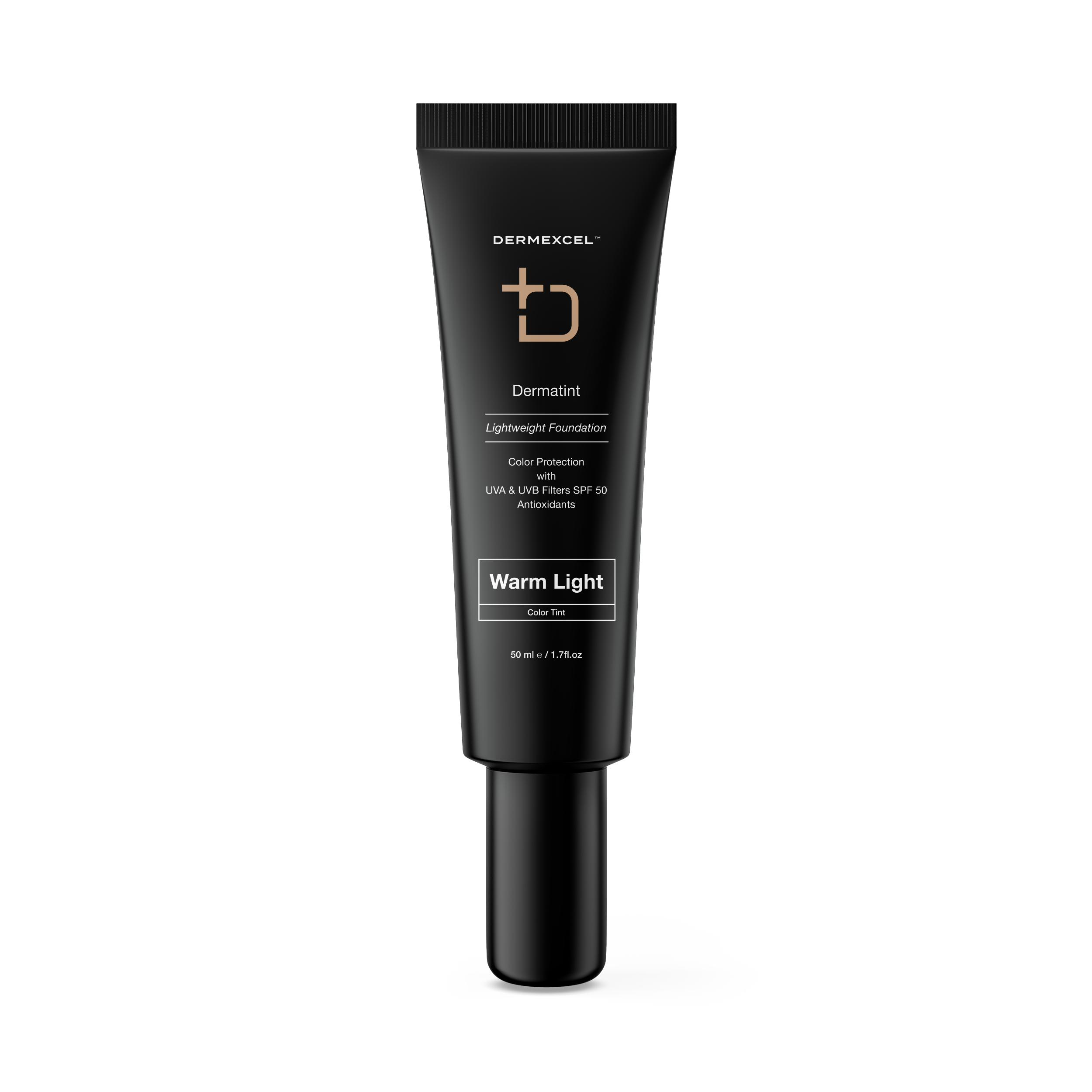
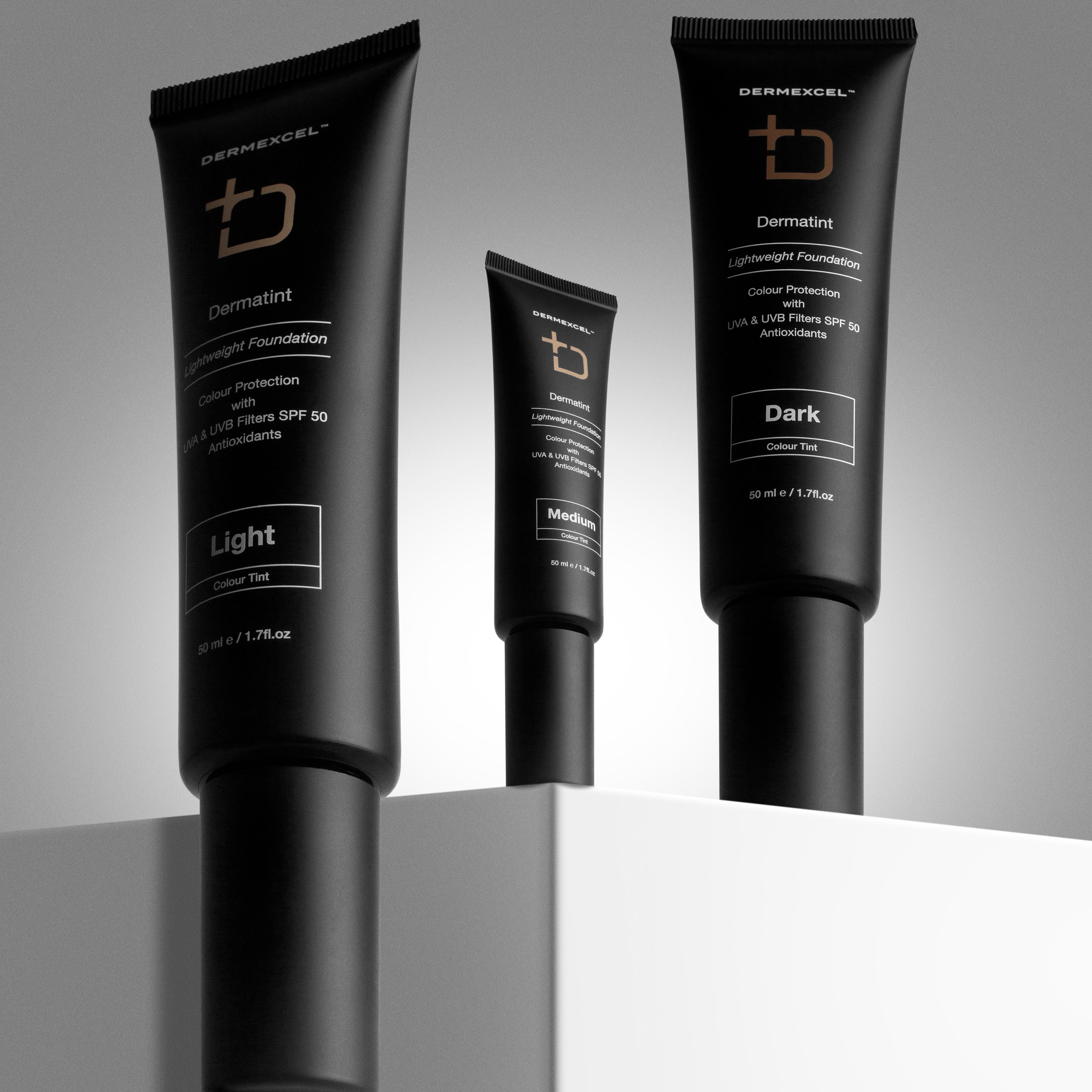

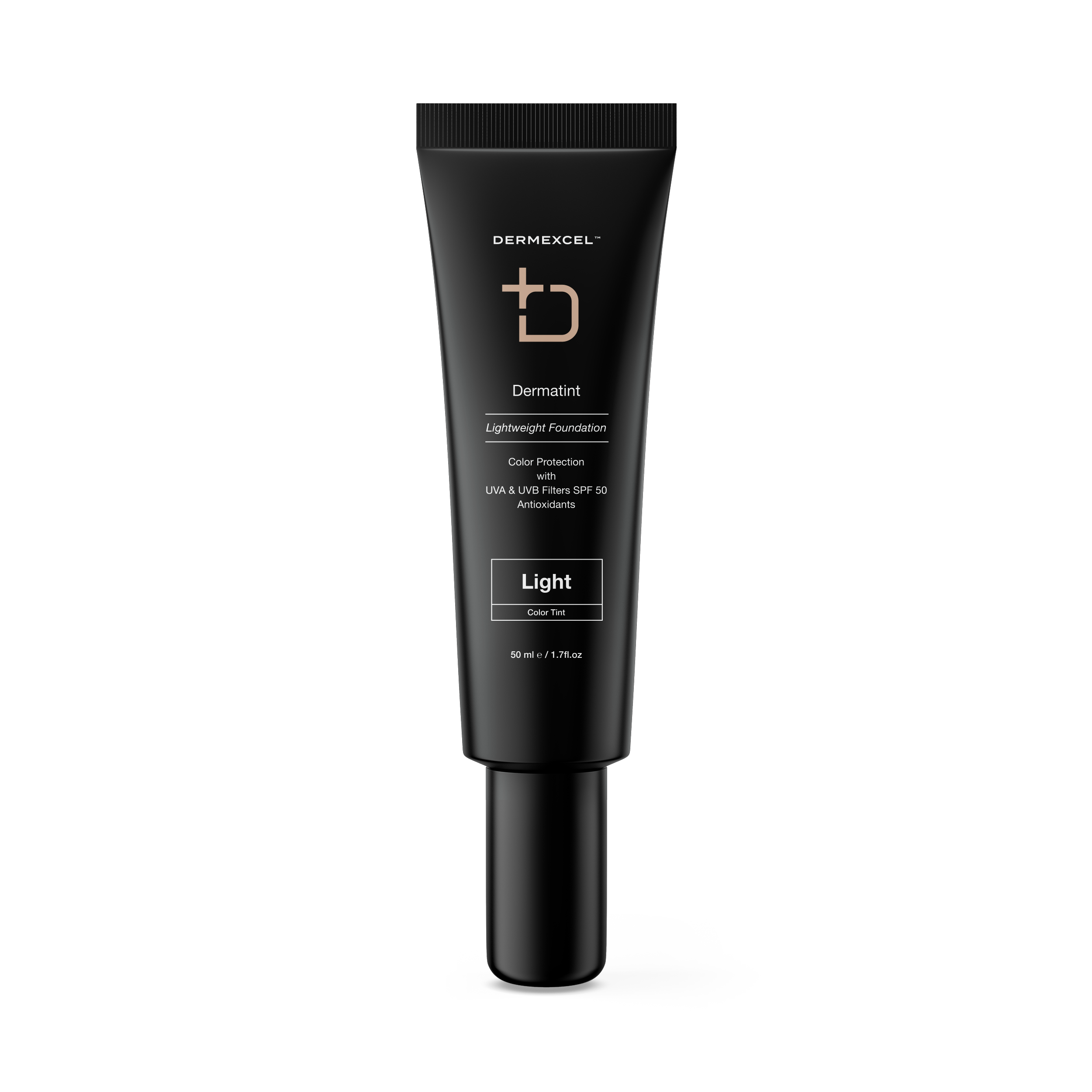
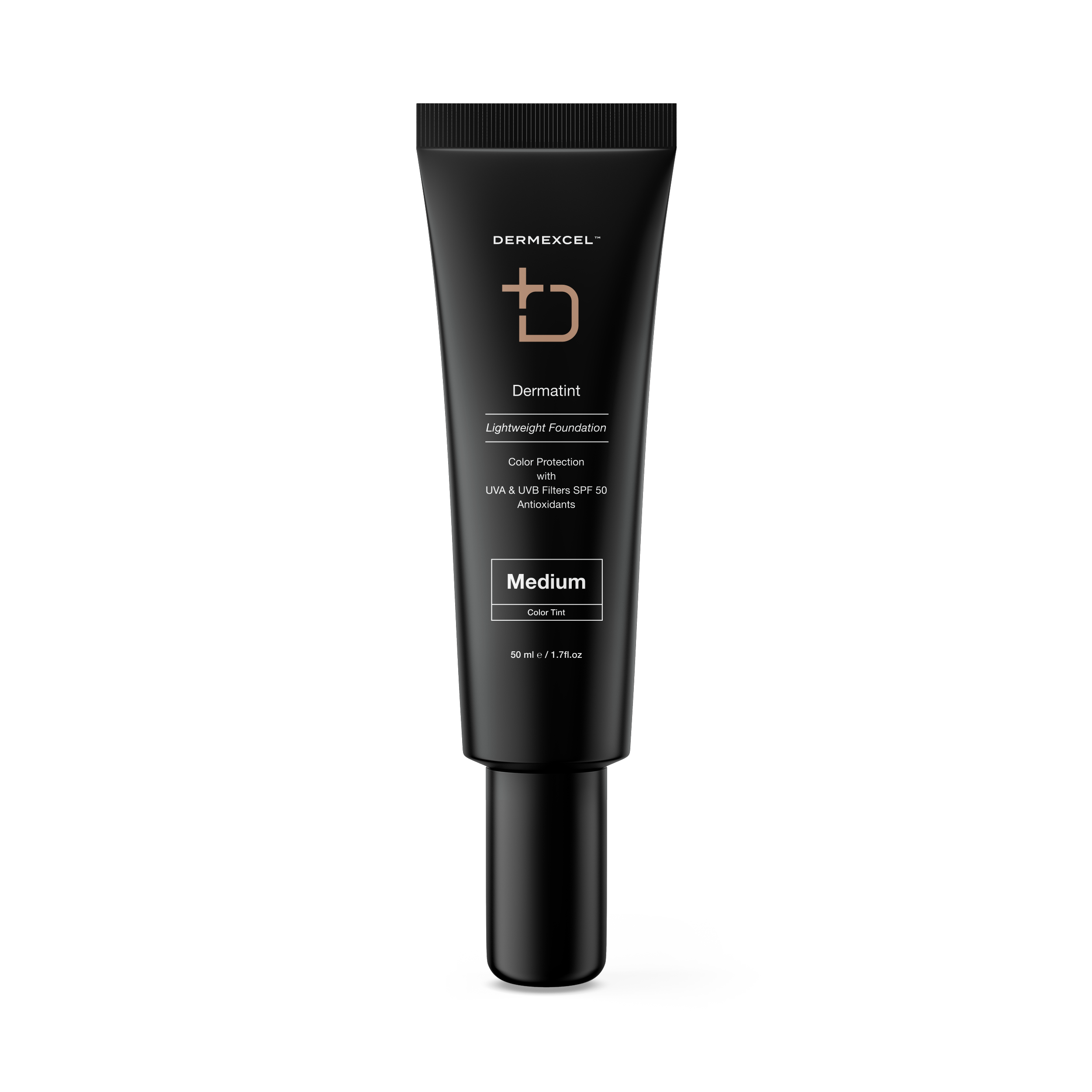
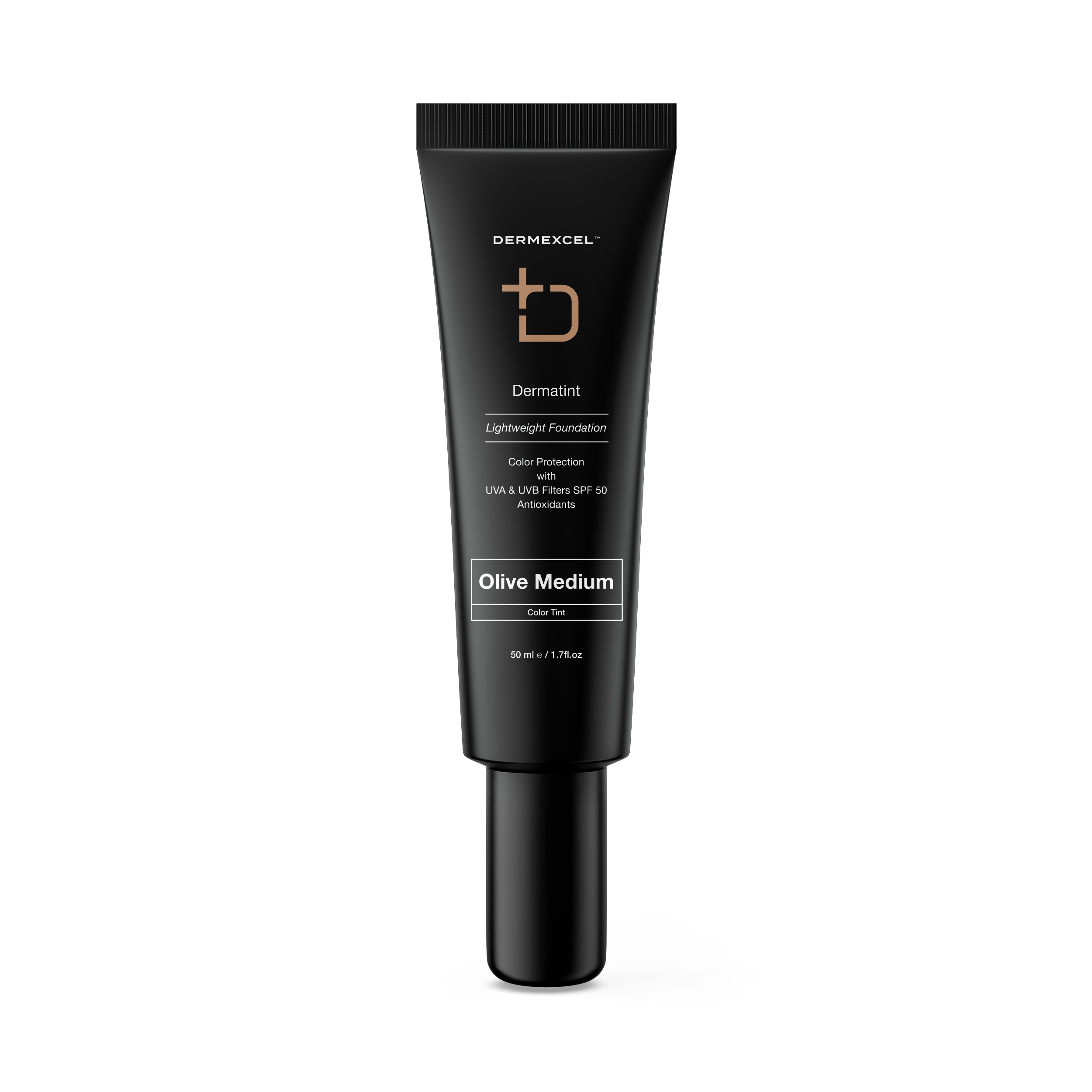
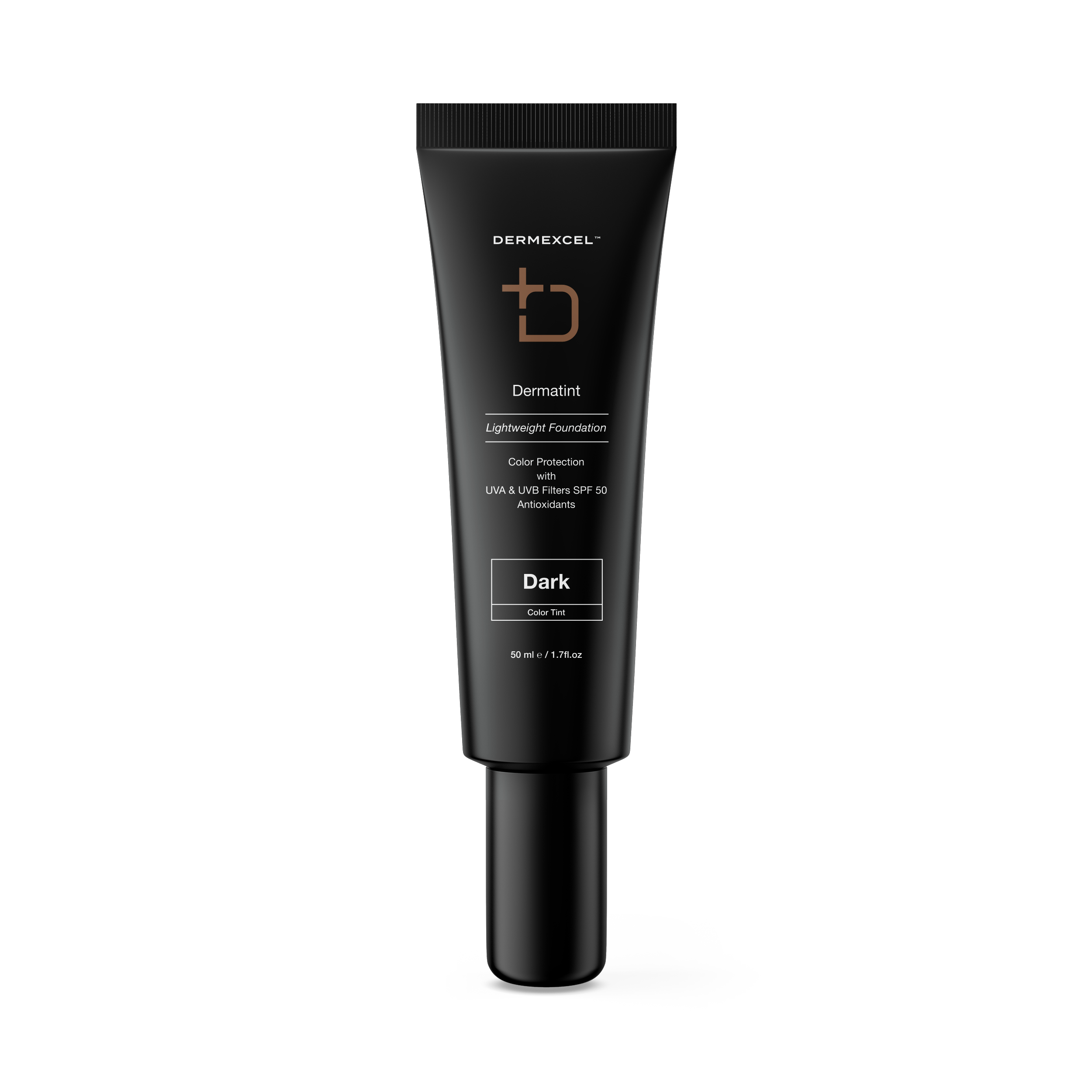
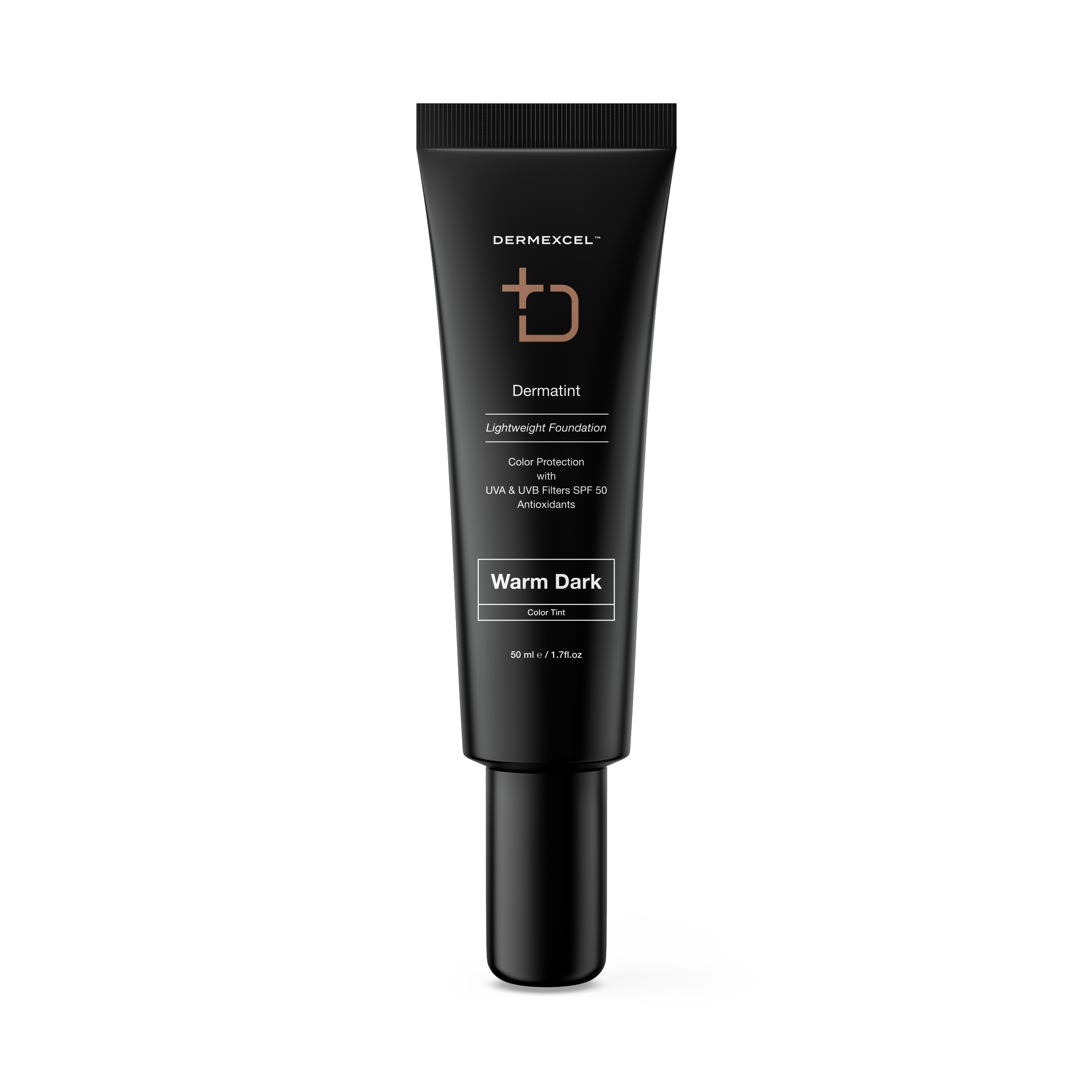





Color Correct

Anti-Aging

Antioxidant

DNA Protection

sun protection
A high-performance hybrid formulation that offers exceptional UV protection while concealing and color-correcting imperfections. This sunscreen results from meticulous research and development, combining the benefits of mineral and chemical filters in a triple UV filter technology.
Dermatint is enriched with Infraguard®, which combats the damaging effects of free radicals, protecting the skin from oxidative stress caused by external factors such as blue light and environmental pollutants. This unique infusion of antioxidants contributes to the prevention of collagen degradation and maintains skin vitality.
This nutrient-rich composition is a nourishing skincare solution that assists in maintaining skin health and vitality, offering comprehensive care beyond sun protection. Its multi-functional properties, combining concealing and color-correcting abilities with superior sun protection and skin nourishment, make it an ideal choice for individuals seeking a comprehensive skincare solution.
Infraguard™
Infraguard™ is a novel and powerful antioxidant powerhouse designed to protect the skin from the potentially harmful effects of electromagnetic radiation, specifically from 5G networks, blue light, and other environmental stressors. It shields the skin against oxidative stress and inflammation, prevents premature aging, and maintains overall health.
Infraguard® is a multifunctional ingredient that extends beyond traditional sun protection. It addresses the broader spectrum of light-induced skin damage and oxidative stress, provides DNA protection, and offers anti-aging benefits. Its inclusion in the DermExcel sunscreens represents an advanced step in comprehensive skin care, targeting UV rays and the often-overlooked infrared and blue light, ensuring a more holistic approach to maintaining skin health and appearance.
Physiological Effects
- Protection Against Blue Light and Infrared (IR) Radiation: Infraguard is formulated to shield the skin from the harmful effects of blue light and IR radiation, which can lead to premature skin aging and damage.
- Antioxidant Properties: It has strong antioxidant capabilities, helping to neutralize free radicals induced by environmental stressors such as pollution, IR, and blue light.
- Anti-Aging Benefits: By protecting against IR radiation and mitigating oxidative stress, Infraguard helps to prevent signs of aging like wrinkles and loss of skin elasticity.
- Skin Barrier Protection: Infraguard strengthens the skin's natural barrier, enhancing its resilience against environmental factors.
- DNA Protection: Infraguard™ aids in shielding the DNA in skin cells from damage caused by environmental aggressors. This is crucial in maintaining the integrity of skin cells and preventing mutations that can lead to skin aging and other skin-related issues.
Managing Dermatological Conditions
- Preventing Photoaging: Infraguard's ability to protect against IR and blue light makes it beneficial in preventing photoaging, a key concern in modern dermatology. Infrared light can penetrate deeper into the skin than UV rays, potentially leading to increased collagen degradation and skin laxity. Infraguard® helps mitigate these effects.
- Combatting Environmental Stressors: Its antioxidant properties protect the skin from various environmental pollutants and stressors.
- Supporting Skin Health: Infraguard contributes to overall skin health by improving the skin's barrier function and providing antioxidant support.
- Suitability for Diverse Skin Conditions: Given its protective and anti-aging properties, Infraguard is suitable for use in various dermatological conditions, especially environmental damage and aging.
References
- Kappler, Katharina et al. "Development of an in Vitro Assay to Evaluate the Biological Impact of 5G Technology on Human Skin. Journal of Cosmetics, Dermatological Sciences and Applications, 2022, vol. 12, pp. 100-108. DOI: 10.4236/jcdsa.2022.122009.
- Extensive references cited within the research article including studies on 5G technology, health effects, and skin biology.
UVB Filters
Uvinul® T 150 and Uvinul® MC 80 offer superior UVB protection, high photostability and very good skin compatibility.
Uvinul® T 150
- High UVB Absorption: Uvinul® T 150 is known for its exceptionally high UVB absorption. It is one of the most efficient UVB filters on a per weight basis, meaning less of it is required to achieve the same level of protection as other filters.
- Photostability: This compound is highly photostable, meaning it doesn't degrade easily when exposed to sunlight. This property is crucial for maintaining consistent UV protection over time.
- Water Resistance: Uvinul® T 150 improve the water resistance of our sunscreen, beneficial for when you have swimming or outdoor activities.
- Low Irritation Potential: It is generally well-tolerated by the skin, with a lower risk of irritation or sensitization compared to other UVB filters.
Uvinul® MC 80
- Efficacy: With an extensive and impressive safety and efficacy history, Uvinul® MC 80 is highly effective in protecting the skin from UVB rays, which are primarily responsible for sunburn and can contribute to skin cancer.
- Elegance: Uvinul® MC 80 have a fantastic texture, leaving no white cast.
UVA Filters
Uvinul® A Plus is a highly effective, photostable, and skin-friendly UVA filter.
Advantages of Uvinul® A Plus Over Other UVA Filters
- High Efficiency: It has a high UVA absorption capacity, which means that smaller quantities are needed to achieve desired levels of UVA protection.
- Broad-Spectrum UVA Protection and Enhanced Sunscreen Efficacy: Uvinul® A Plus provides strong protection against UVA rays, which are responsible for deeper skin damage including premature aging, wrinkles, and increasing the risk of certain types of skin cancer. By effectively absorbing UVA rays, it complements UVB filters in the formulation to offer broad-spectrum protection, crucial for comprehensive sun care.
- Excellent Photostability: Compared to other UVA filters, Uvinul® A Plus is more photostable, reducing the risk of degradation and loss of efficacy when exposed to sunlight.
- Skin Compatibility: It is generally well-tolerated by the skin, with a lower incidence of irritation or allergic reactions compared to other UVA filters.
- Elegance: Uvinul® A Plus is pleasant to use and apply evenly - without leaving a white cast on your skin!
Broad Spectrum Filters
Tinosorb® M and Tinosorb® S represent sophisticated advancements in sun protection technology.
Tinosorb® M
- Biochemical Action: A unique UV filter due to its ability to function through absorption, reflection, and scattering of UV rays.
- Physiological Impact: The triple-action mechanism of Tinosorb® M offers comprehensive sun protection. By mitigating the penetration of both UVA and UVB rays, it significantly reduces the risk of DNA damage, photoaging, and carcinogenesis. Its ability to remain on the skin's surface reduces systemic exposure, making it a safer option with minimal potential for irritation or allergic reactions.
Tinosorb® S
- Biochemical Action: A broad-spectrum UV filter with a molecular structure that effectively absorbs both UVA and UVB rays. Additionally, it enhances the photostability of other UV filters, making the sunscreen formulation more effective over time.
- Physiological Impact: By providing extensive UVA and UVB protection, Tinosorb® S plays a crucial role in preventing short-term sun damage like sunburn and long-term risks such as skin aging and skin cancer. Its photostability ensures sustained protection during sun exposure, and its compatibility with other UV filters means it can be used to formulate sunscreens that are both effective and suitable for sensitive skin.
Coenzyme Q10
CoQ10 is a potent ingredient that offers comprehensive skin health and appearance benefits. Its role in energy production and its antioxidant and anti-aging properties make it invaluable for photoprotection, anti-aging, and overall skin vitality. Its incorporation into DermExcel sunscreen represents a holistic approach to skin health, addressing protective and restorative needs.
Physiological Impact
- Skin Barrier Enhancement: CoQ10 contributes to the strength and health of the skin barrier, improving its ability to retain moisture and protect against external irritants and pollutants.
- Skin Repair and Regeneration: It supports the skin's natural ability to repair itself and regenerate, maintaining a healthy, youthful appearance. This is particularly beneficial in mature skin, where natural levels of CoQ10 may be depleted.
Pharmacological Advantages
- Anti-Aging Effects: CoQ10's antioxidant properties contribute to its anti-aging effects. By reducing oxidative stress, it helps to minimize the visible signs of aging, such as wrinkles and fine lines.
- Photoprotection: It enhances the skin's defense against photoaging caused by exposure to UV rays. CoQ10 helps to mitigate the degradation of collagen and elastin, proteins essential for maintaining skin elasticity and firmness.
Biochemical Benefits
- Cellular Energy Production: CoQ10 plays a crucial role in the mitochondrial electron transport chain, which is essential for the production of ATP, the primary energy currency of the cell. This function is vital for maintaining the health and vitality of skin cells.
- Antioxidant Properties: It acts as a lipophilic antioxidant, neutralizing free radicals and preventing oxidative damage to cell membranes, proteins, and DNA. This is particularly important in the skin, which is frequently exposed to oxidative stress from environmental factors like UV radiation.
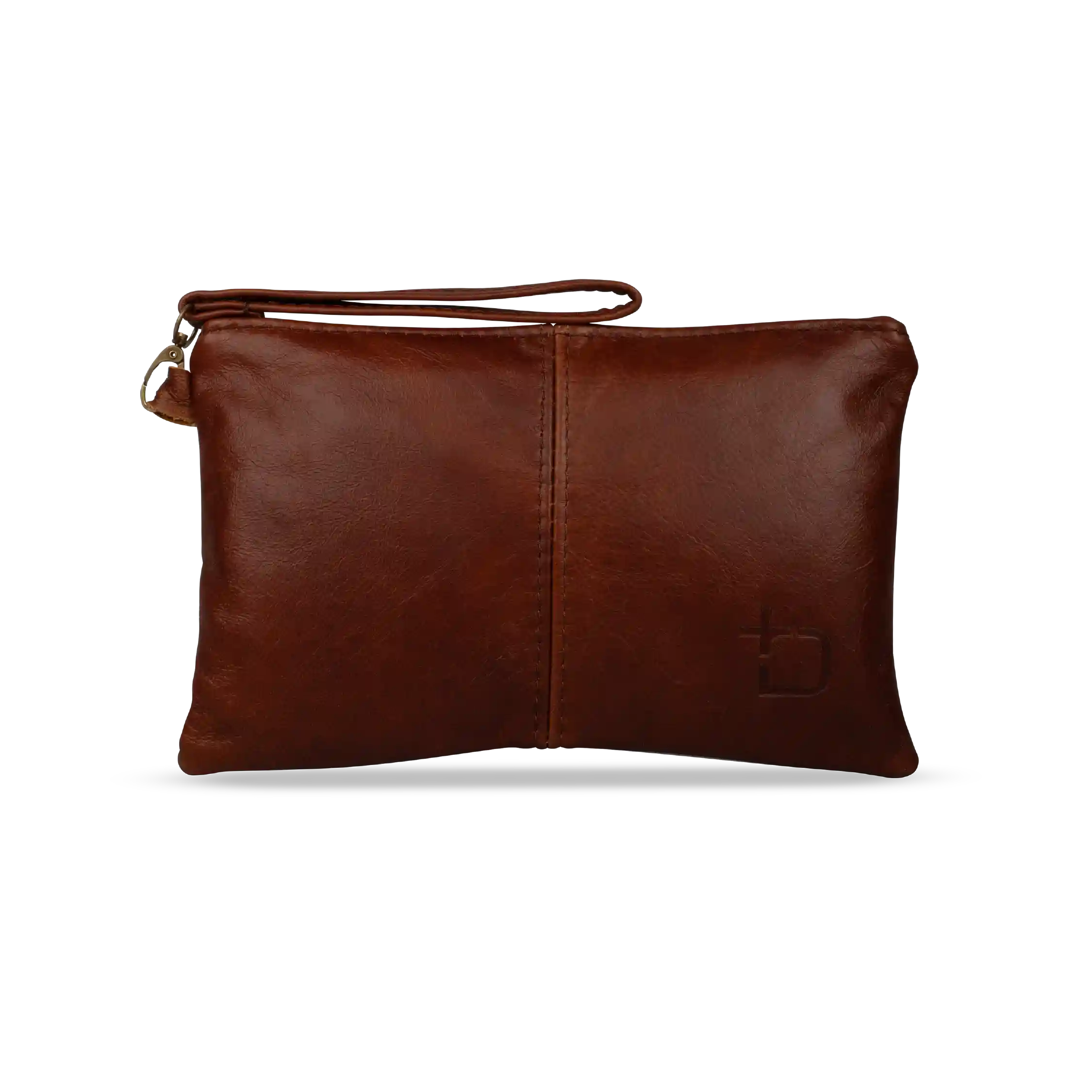





Crafted from 100% genuine leather, the DermExcel™ Sling Clutch Bag combines timeless style with everyday practicality. With its refined yet relaxed feel, it's perfect for those who value simplicity, quality, and effortless style.
The spacious, unlined interior makes it ideal for carrying daily essentials like cosmetics, tech accessories, keys, or other small personal items. A sturdy zip closure keeps everything secure, while the sleek, removable wrist strap offers convenient, comfortable carrying on the go.
Whether you're heading to dinner, running errands, or travelling light, this versatile clutch is a dependable companion that only gets better with age.
Features:
- Genuine leather exterior with a natural grain finish
- Unlined interior for a raw, authentic feel
- Zip closure for secure storage
- Attached wrist strap for easy carrying
Size: H16cm x W28cm
Material: 100% Genuine Leather
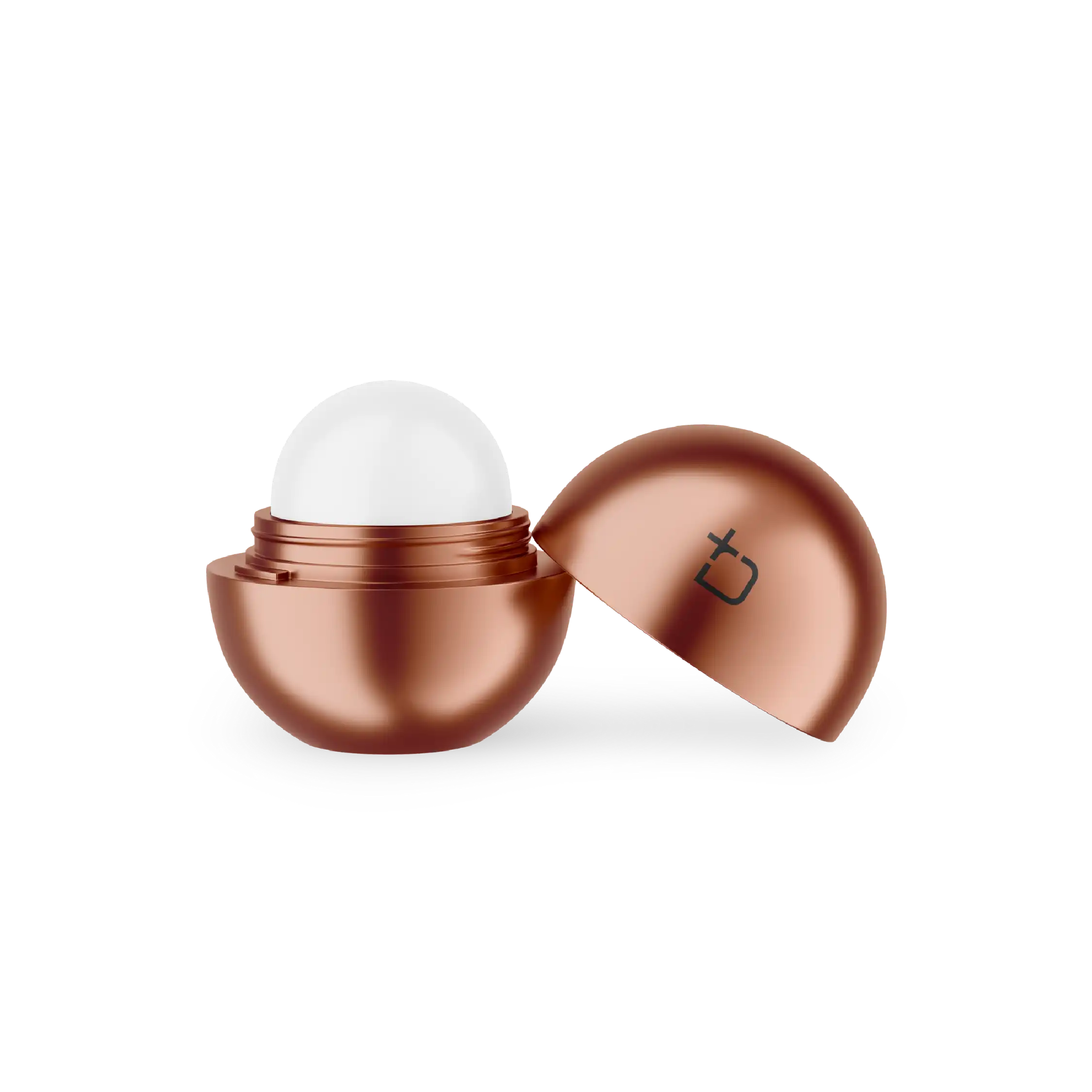
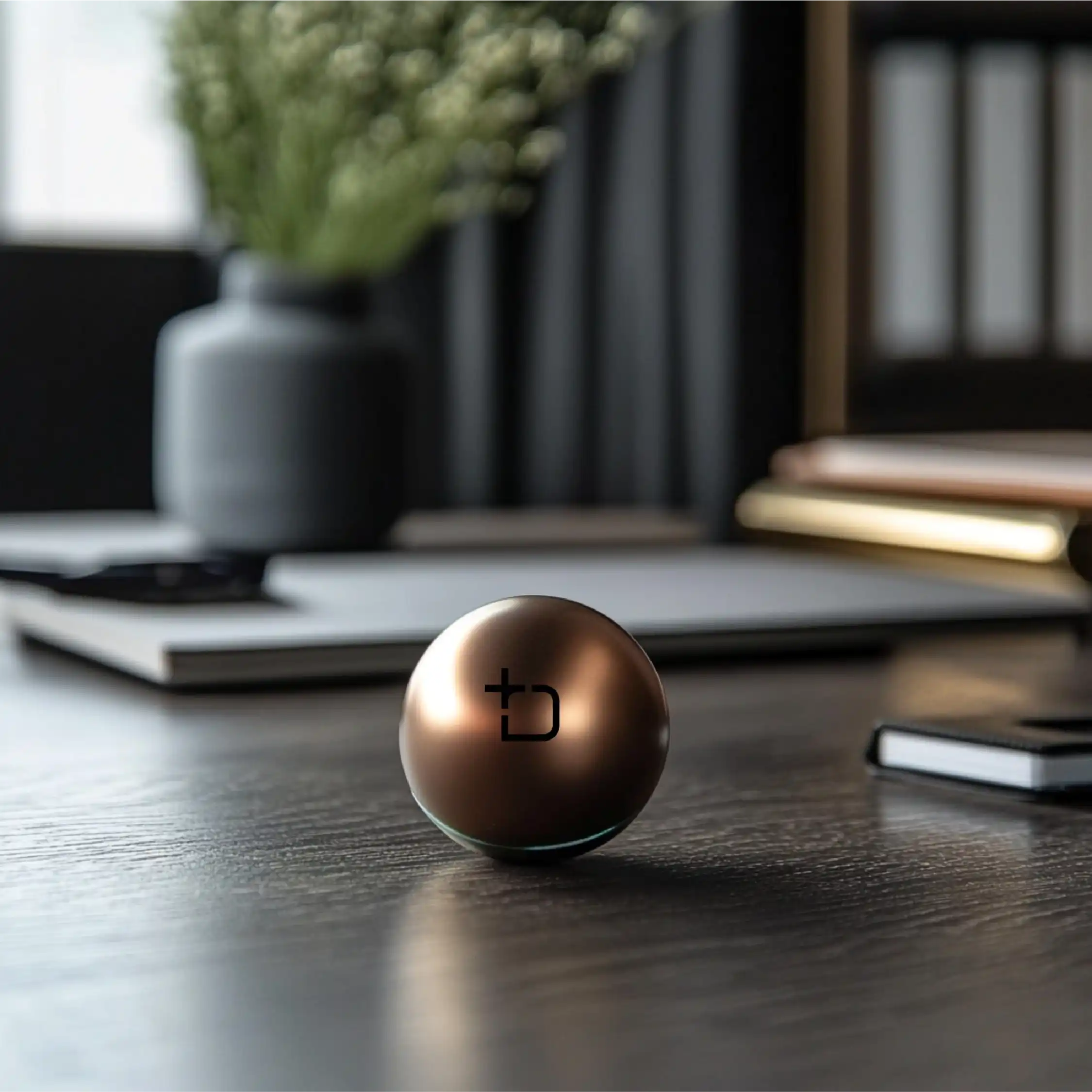
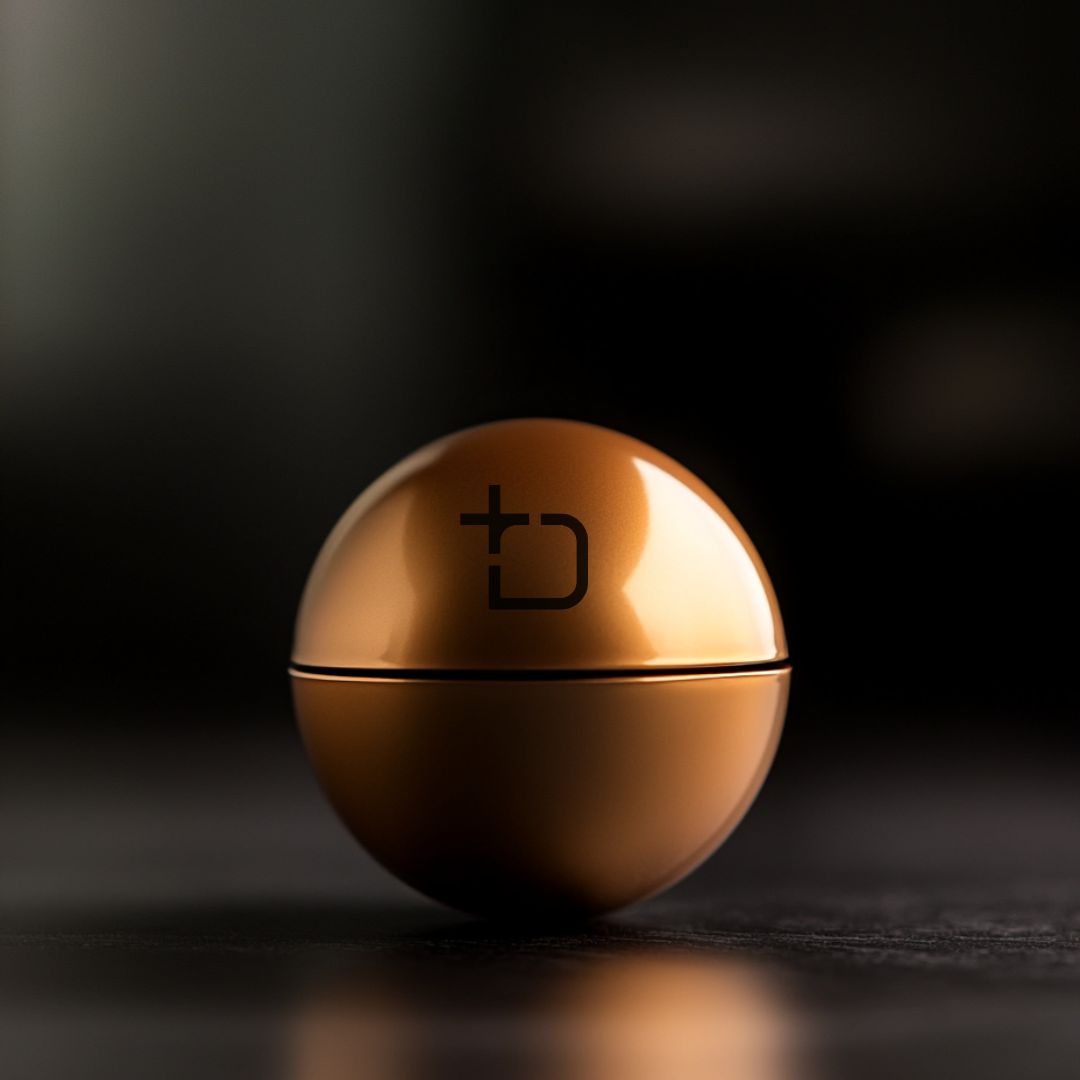
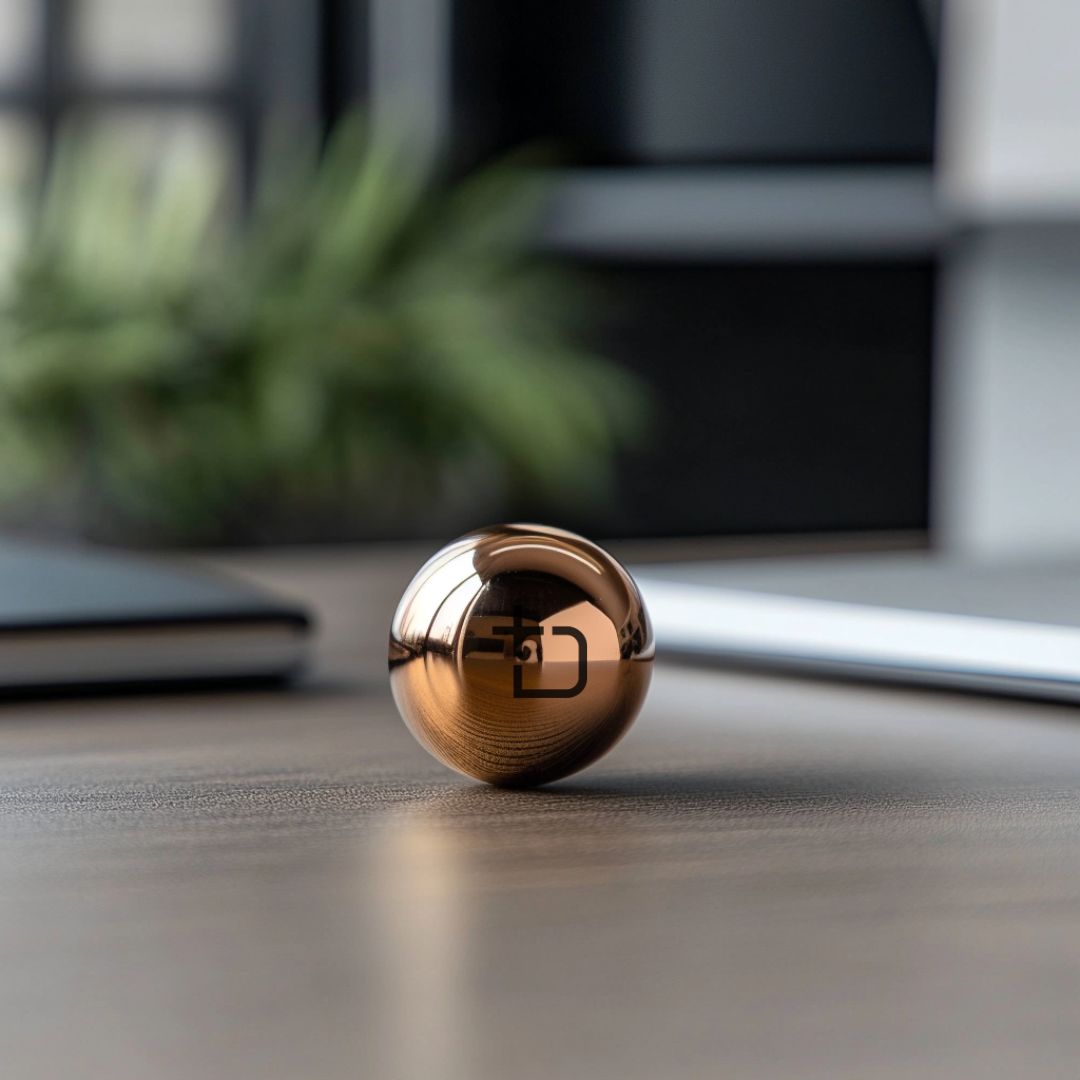





Primer

Softening

Protection

Healing

Moisturizing
DermExcel Lip Balm – your ultimate daily companion for smooth, nourished lips. Specially formulated with a blend of deeply hydrating natural oils and butters, this lip balm provides long-lasting moisture and protection against harsh environmental elements. Infused with antioxidant-rich vitamin E and soothing extracts, it repairs and rejuvenates dry, chapped lips, leaving them soft and supple. The lightweight, non-greasy formula absorbs quickly, offering an invisible shield of hydration with a subtle, refreshing scent. Whether you’re battling winter cold or summer sun, DermExcel Lip Balm keeps your lips perfectly moisturized, healthy, and kissably soft all day long.
DermExcel Lip Butter is a promotional item that Dermal Health Science does not manufacture.
Testimonials
This hand treatment is the best for dry hands work perfectly for your hands. Best product for your hands.
This was an excellent gift and I needed all the products put together in the gift.
I absolutely love these products, I’ve been using the range for 3 years now and will it change!!
Love it!
Wooow I am glowing I love 💖 it.
Thank you Dermal
Just the perfect gift for any mom or even yourself! Has just the right selection of products.













